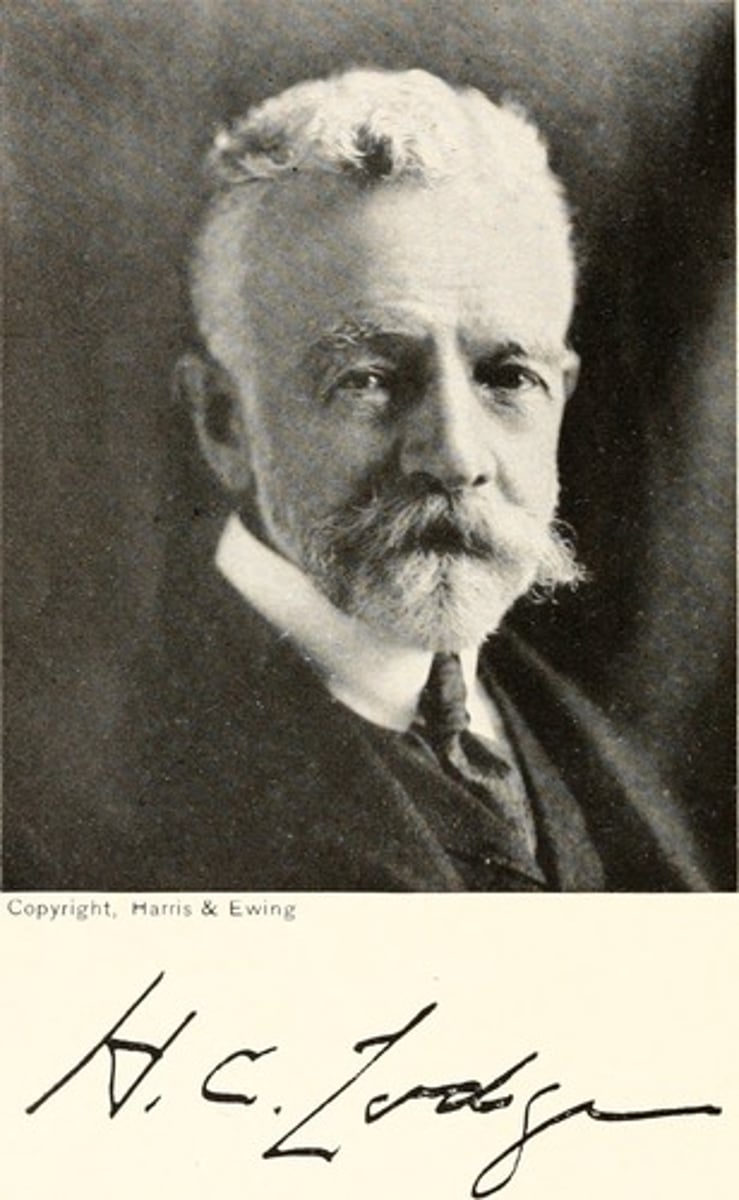The American Pageant Ch. 29 (16th Ed)
1/34
There's no tags or description
Looks like no tags are added yet.
Name | Mastery | Learn | Test | Matching | Spaced |
|---|
No study sessions yet.
35 Terms
Underwood Tariff
This tariff greatly reduced rates and enacted an unprecedented, graduated federal income tax. By 1917, revenue from the income tax surpassed receipts from the tariff, a gap that has since been vastly widened.
Historical Significance: Participation in paying income taxes is seen a civic duty and has consequences if taxes are not paid by citizens. The graduated income attempted to alleviate the tax amount on the poor to find a better balance than one percentage of all incomes.
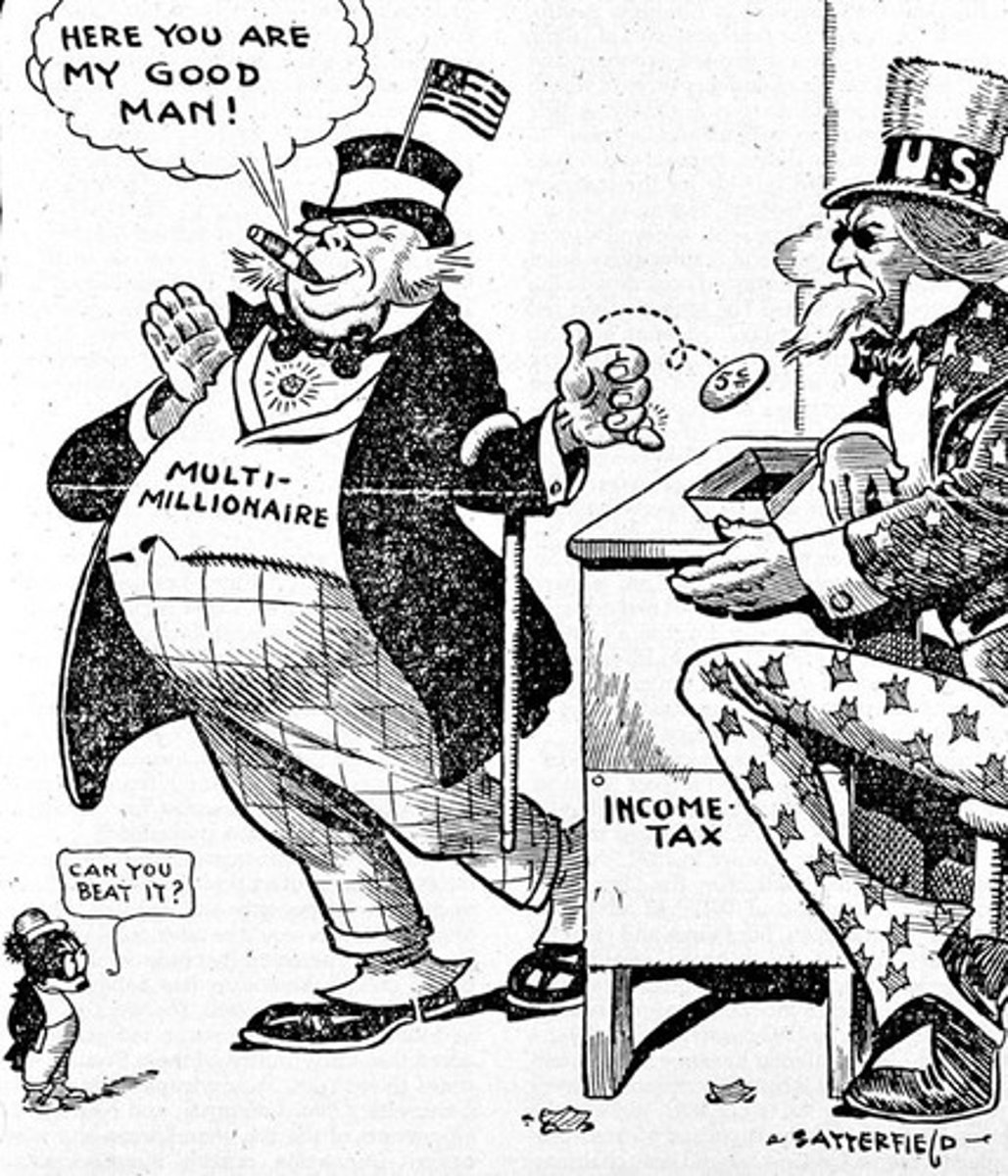
Woodrow Wilson
President of the United States (1913-1921) and the leading figure at the Paris Peace Conference of 1919. He was unable to persuade the U.S. Congress to ratify the Treaty of Versailles or join the League of Nations.
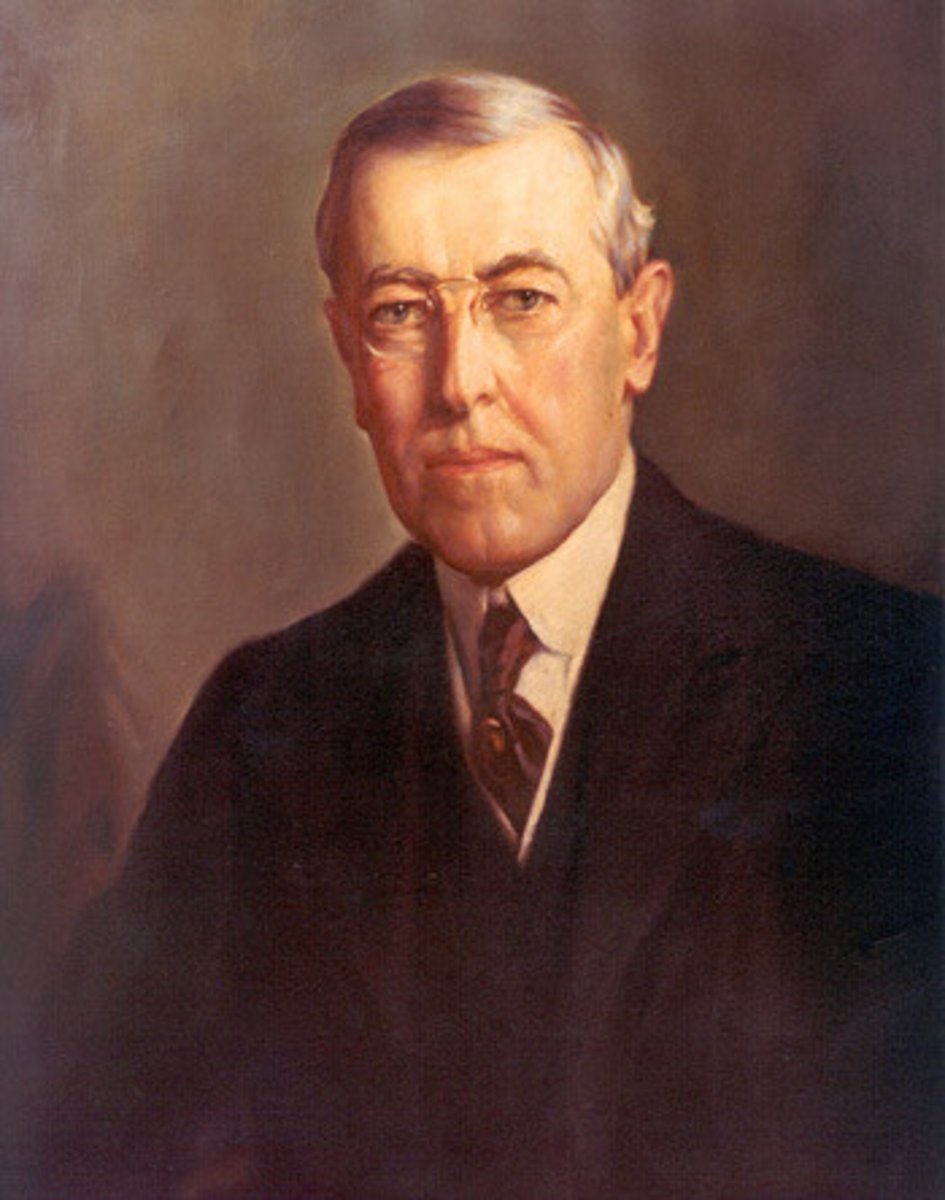
16th Amendment
Amendment to the United States Constitution (1913) gave Congress the power to tax income.

Federal Reserve Act
This act established the Federal System, which established 12 distinct reserve to be controlled by the banks in each district; in addition, a Federal Reserve board was established to regulate the entire structure; improved public confidence in the banking system.
Historical Significance:
American business and wealth accumulation required a better system of banking since the Divorce Bill. By establishing reserves in different cities Americans felt the money was more secure.
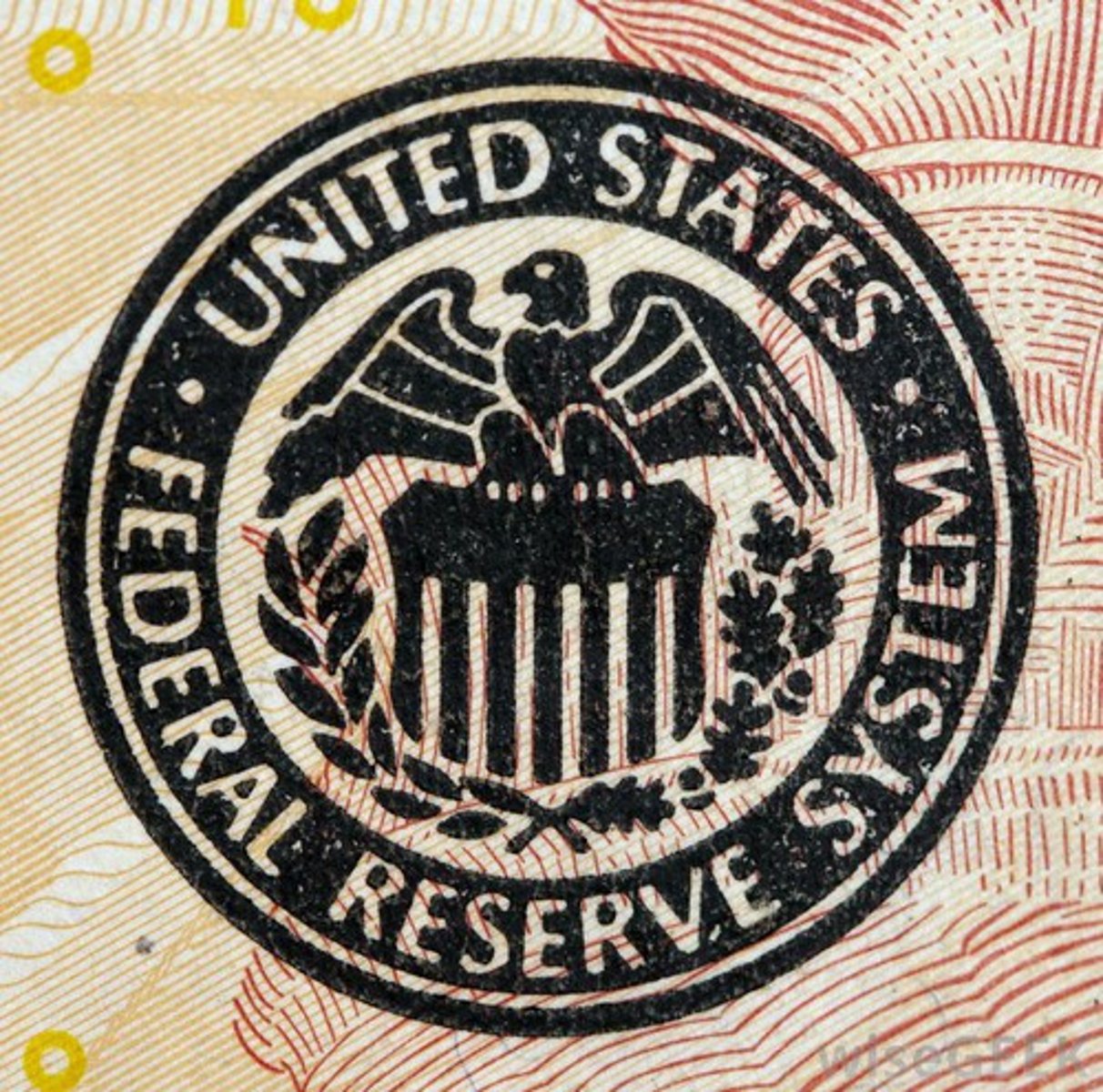
Federal Trade Commission Act (1914)
A banner accomplishment of Woodrow Wilson's administration, this law empowered a standing, presidentially appointed commission to investigate illegal business practices in interstate commerce like unlawful competition, false advertising, and mislabeling of goods.
Historical Significance:
Americans depend upon the practices of a business to keep them safe. The law provided security in preventing the issues uncovered by Upton Sinclair's The Jungle.
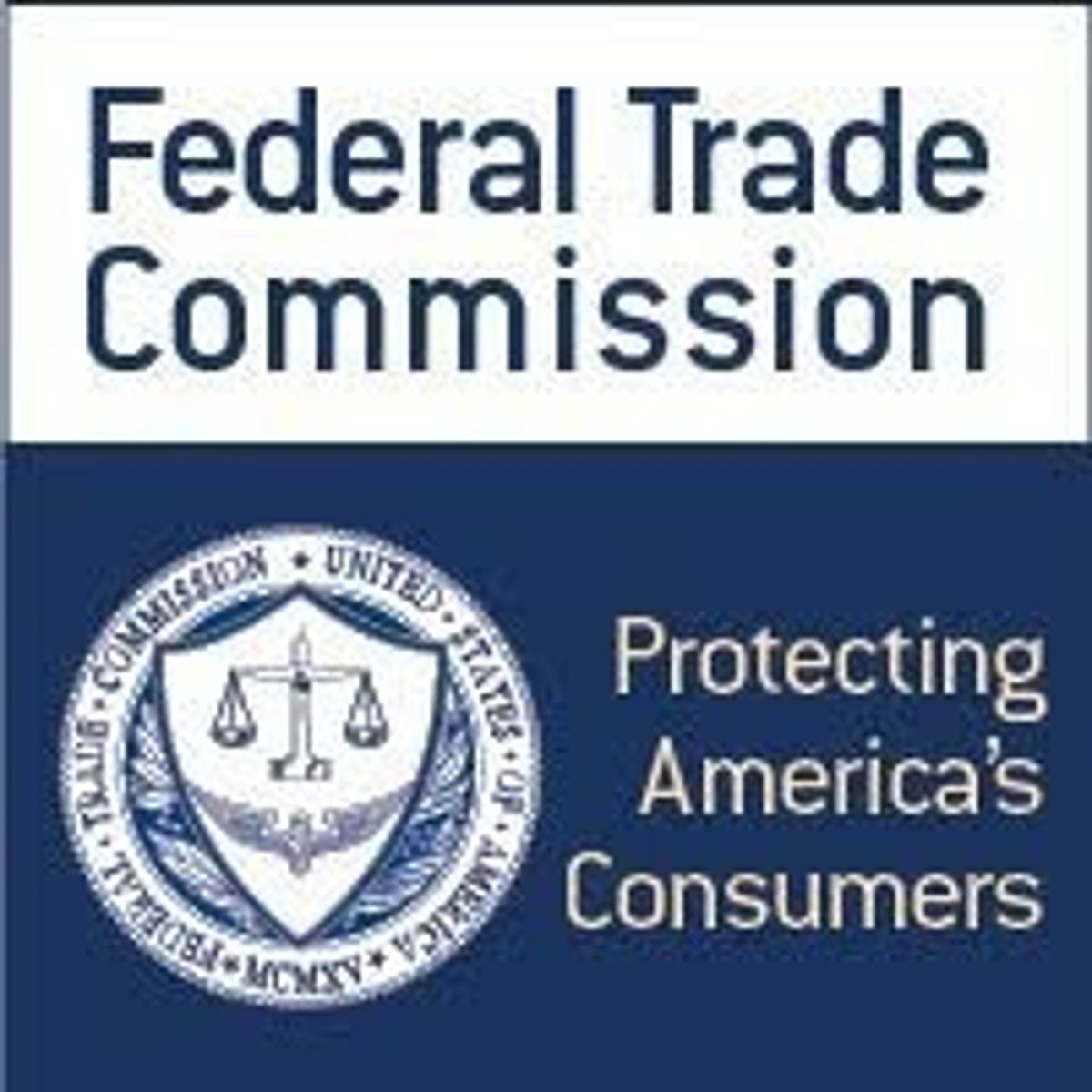
Clayton Antitrust Act
Law extending the anti-trust protections of the Sherman Anti-Trust Act and exempting labor unions and agricultural organizations from anti monopoly constraints. The act conferred long-overdue benefits to labor, such as legalizing strikes and peaceful picketing.
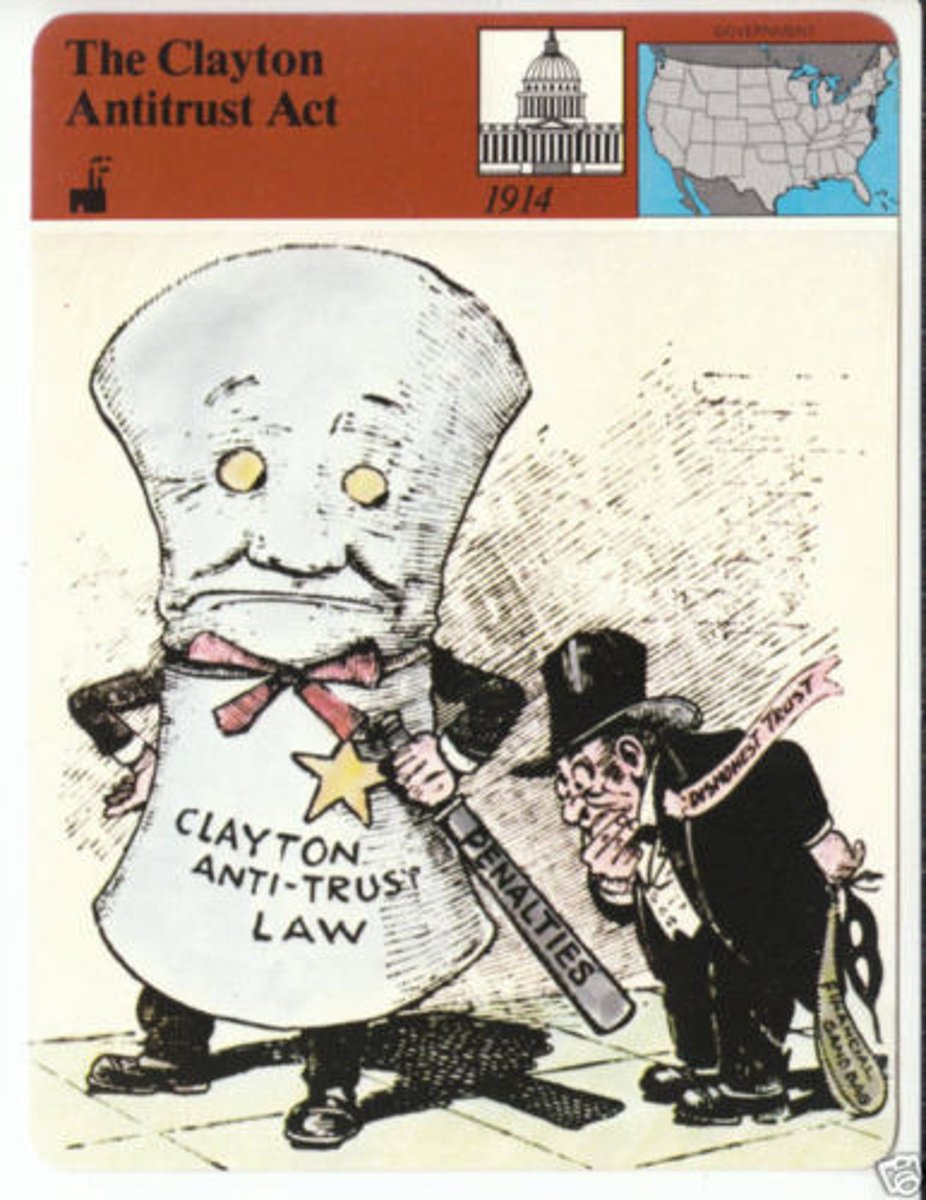
Workingmen's Compensation Act
Passed under Woodrow Wilson, this law granted assistance to federal civil-service employees during periods of disability. It was a precursor to labor-friendly legislation passed during the New Deal.
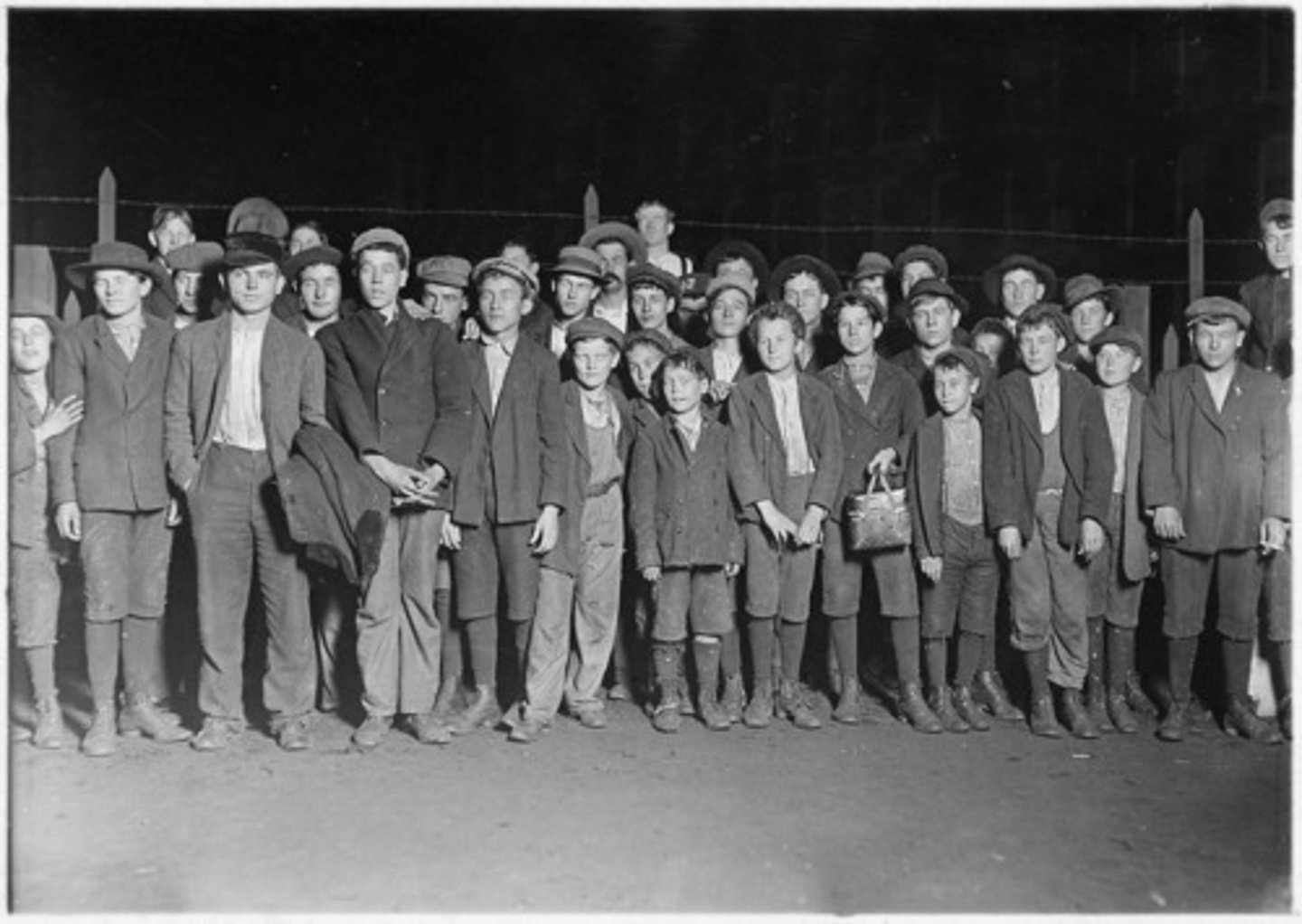
Adamson Act
This law established an eight-hour day for all employees on trains involved in interstate commerce, with extra pay for overtime. It was the first federal law regulating the hours of workers in private companies, and was upheld by the Supreme Court Wilson v. New (1917).
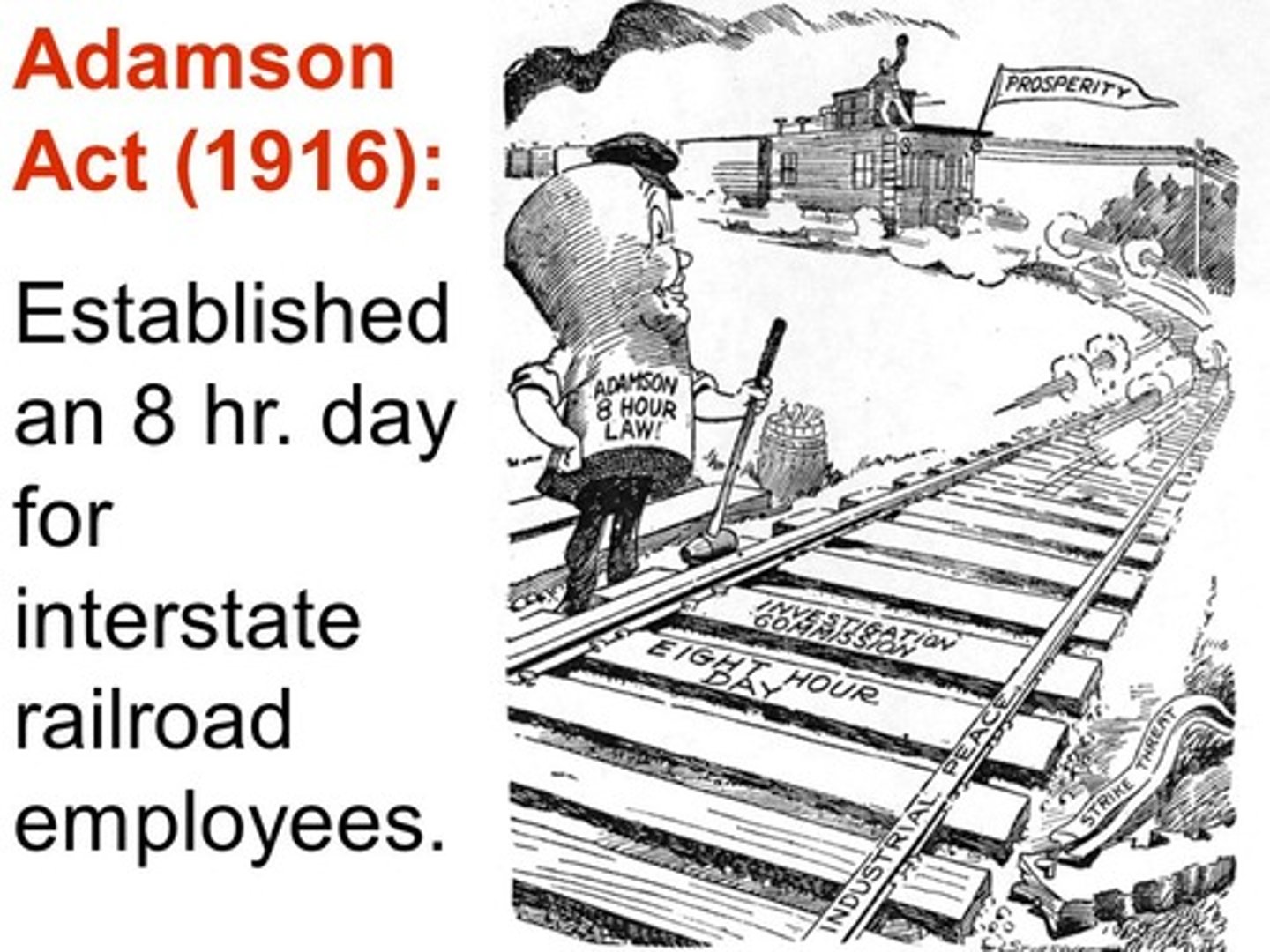
Jones Act
Law according territorial status to the Philippines and promising independence as soon as a "stable government" could be established. The United States did not grant the Philippines independence until July 4, 1946.
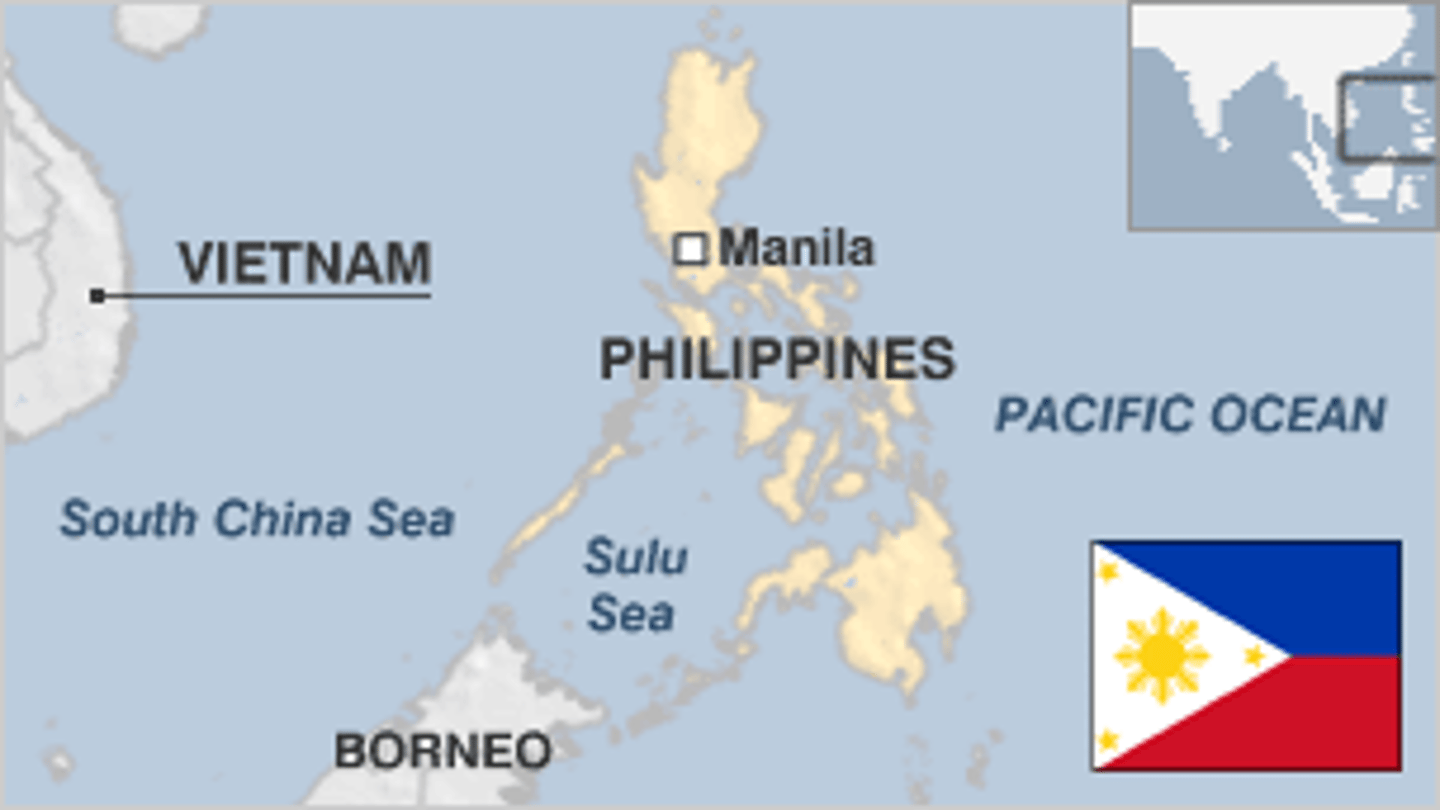
Tampico Incident
An arrest of American sailors by the Mexican government that spurred Woodrow Wilson to dispatch the American navy to seize the port of Veracruz in April 1914. Although war was avoided, tensions grew between the US and Mexico.
Historical Significance:
Germany will attempt to utilize these tensions to their benefit through the Zimmerman Note.
Wilson's involvement in Mexico is a contradiction to his Moral Diplomacy and right of self determination by supporting one leader over another.
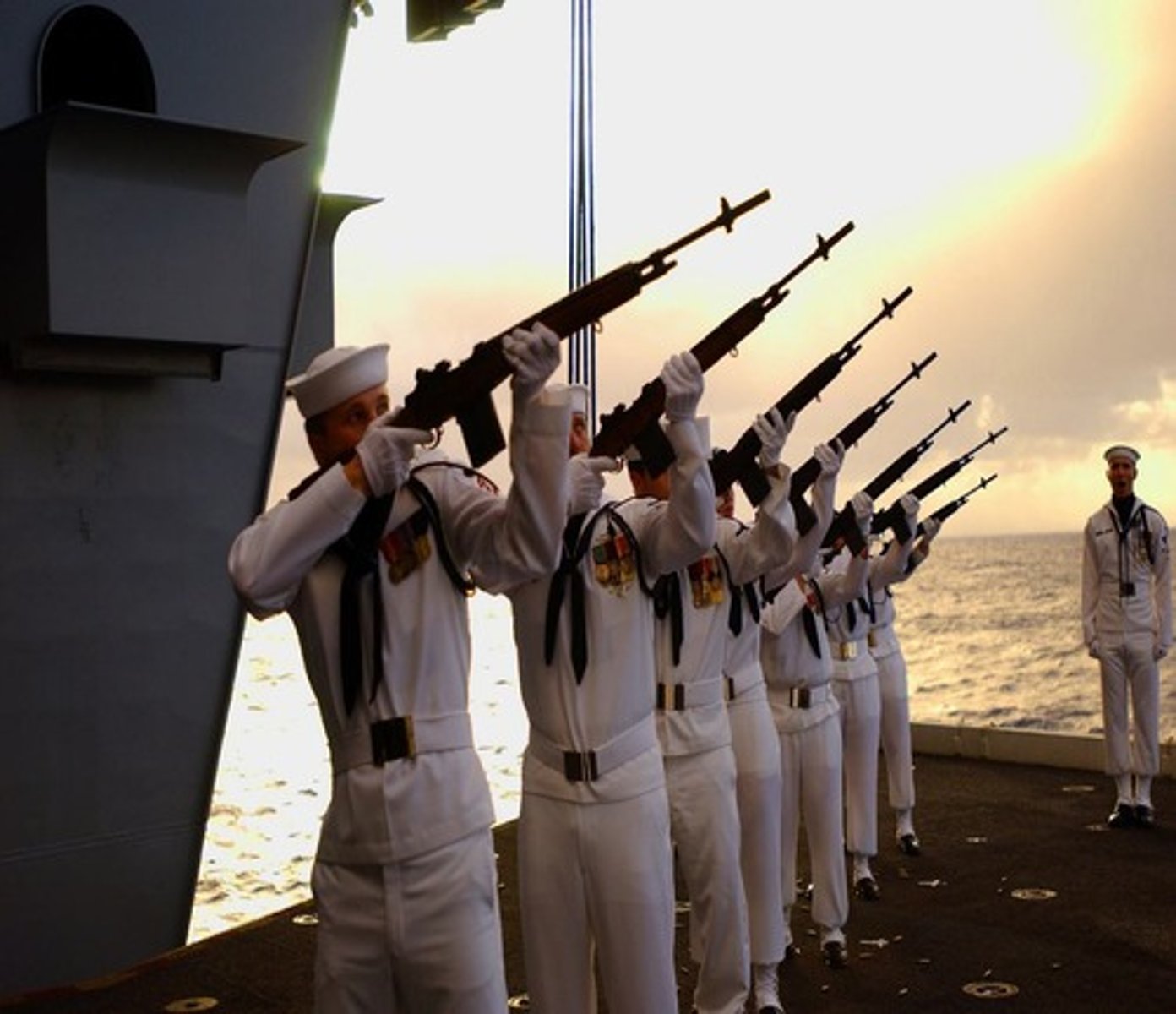
Victoriano Huerta
He was a Mexican military officer and President of Mexico who was also leader of the violent revolution that took place in 1913. His rise to power caused many Mexicans to cross the border as well as angering the United States who saw him as a dictator.
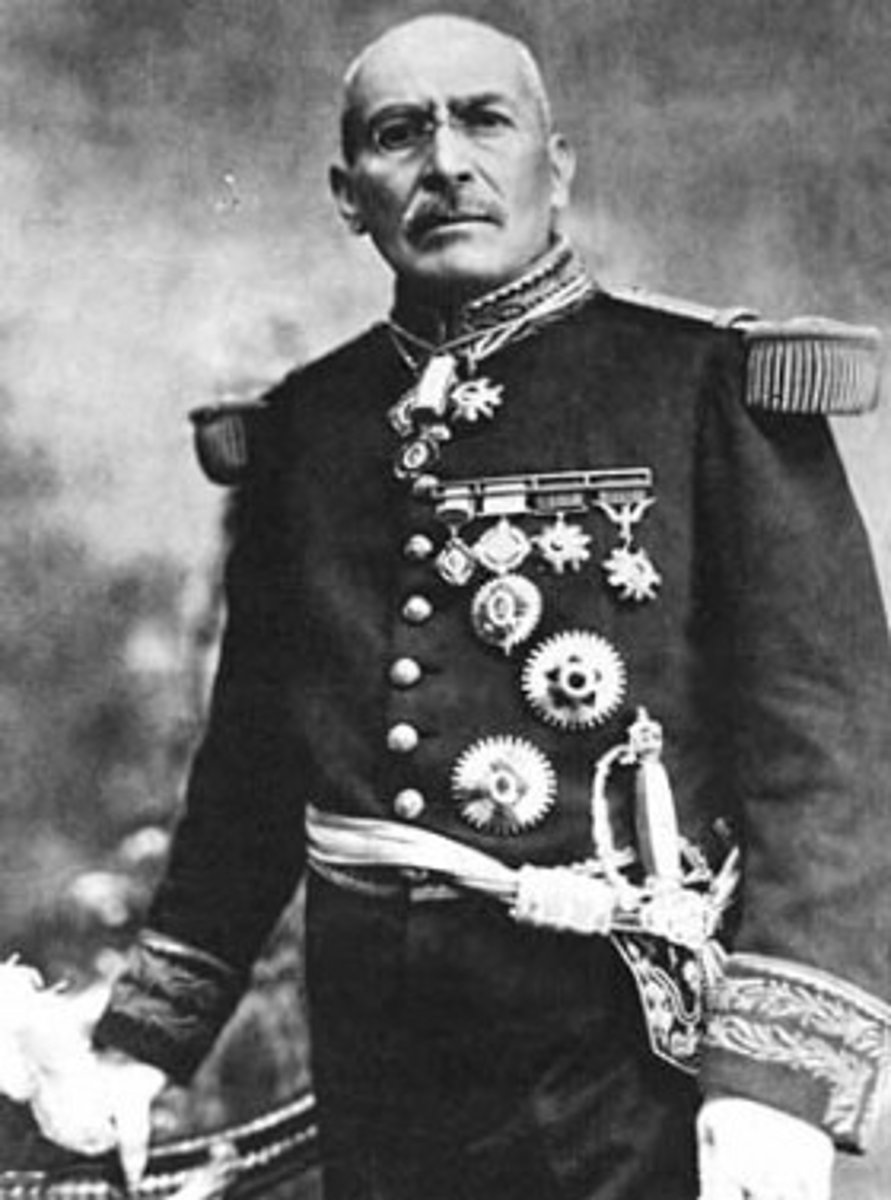
Pancho Villa
Combination bandit/freedom fighter, murdered 16 Americans in January 1916 in Mexico and then killed 19 more a month later in New Mexico. He was pusued by the US Army for years, but never caught
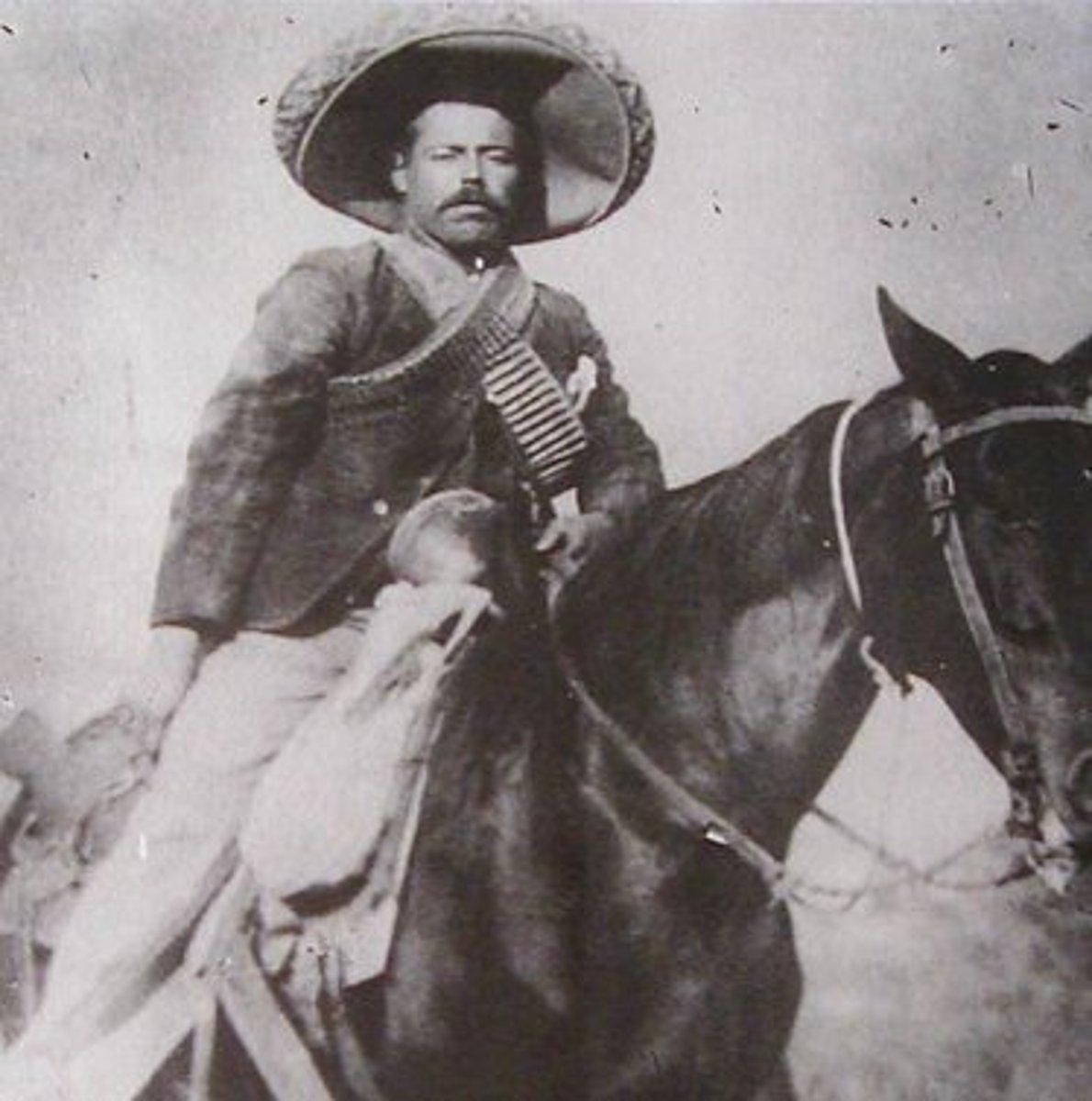
Central Powers
Germany, Austria-Hungary, Ottoman Empire and Bulgaria
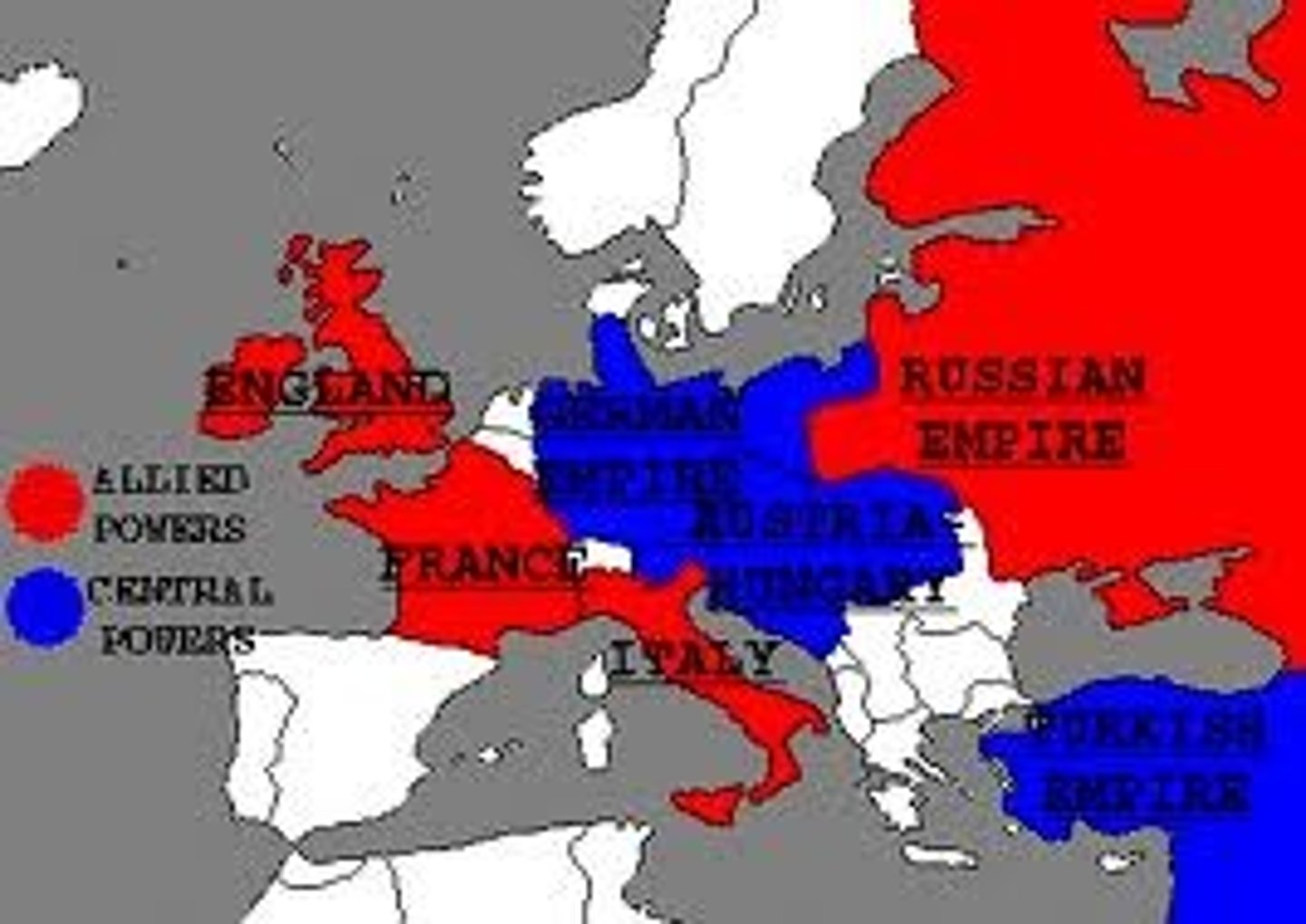
Allies (Triple Entente)
France, Britain, Russia
Historical Significance:
Later joined by Italy and the US
This group will outline the Treaty of Versailles minus Russia
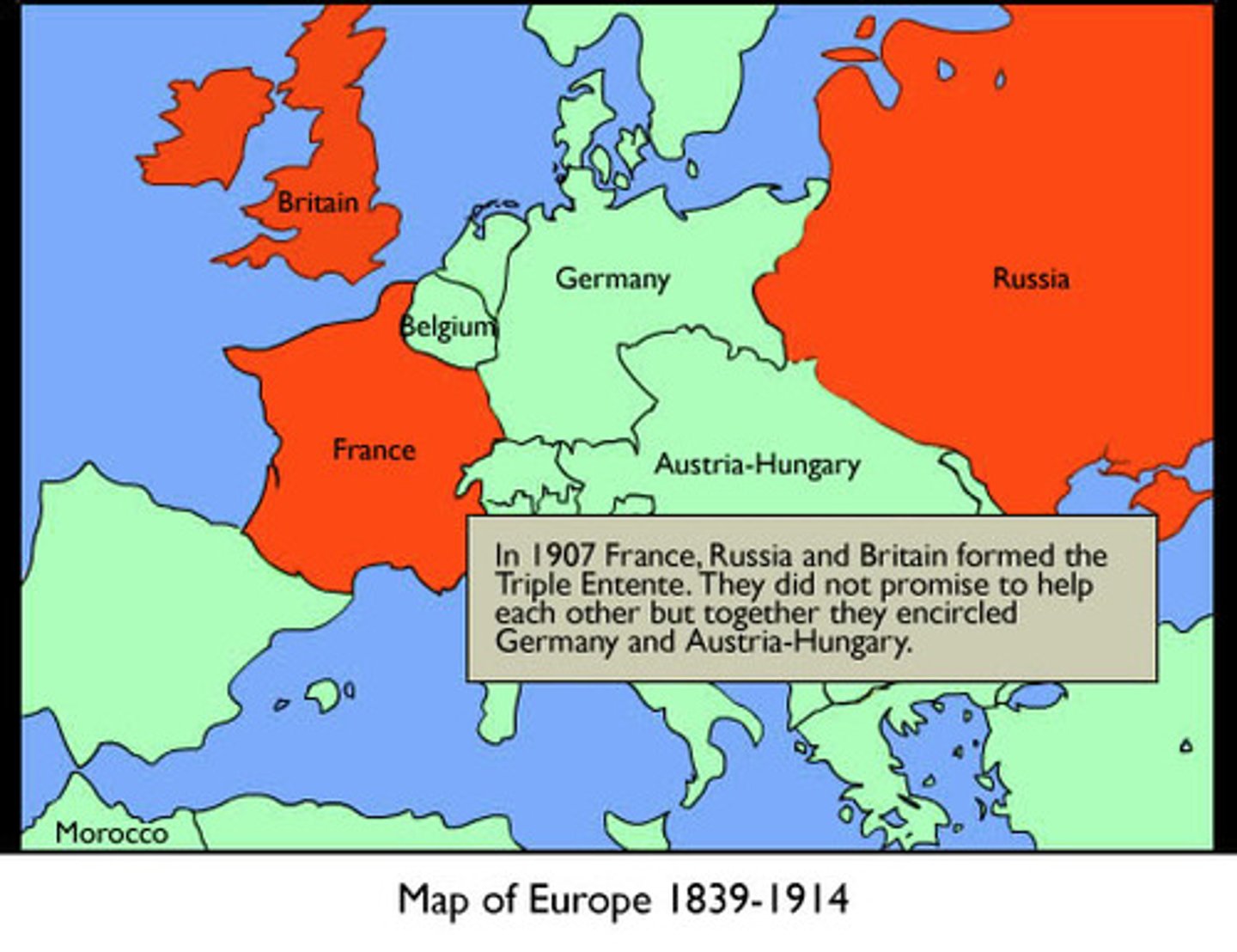
U-boats
German submarines, named for the German Unterseeboot, or "undersea boat," proved deadly for Allied ships in the war zone. U-boat attacks played an important role in drawing the United States into the war.
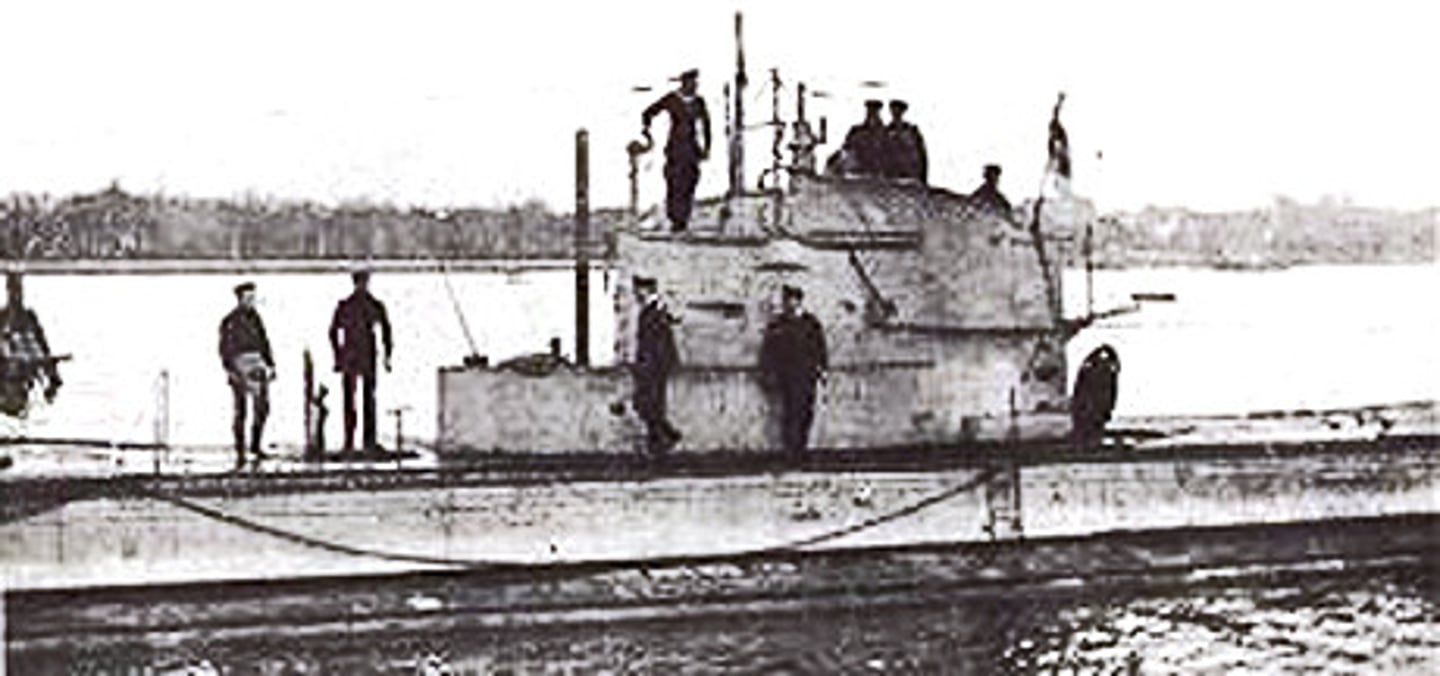
Lusitania
British passenger liner torpedoed and sank by Germany on May 7, 1915. It ended the lives of 1,198 people, including 128 Americans, and pushed the United States closer to war.
Historical Significance:
reflection of unrestricted submarine warfare-
US will fight for trade rights and freedom of the seas- a point reflected in Wilson's Fourteen Points
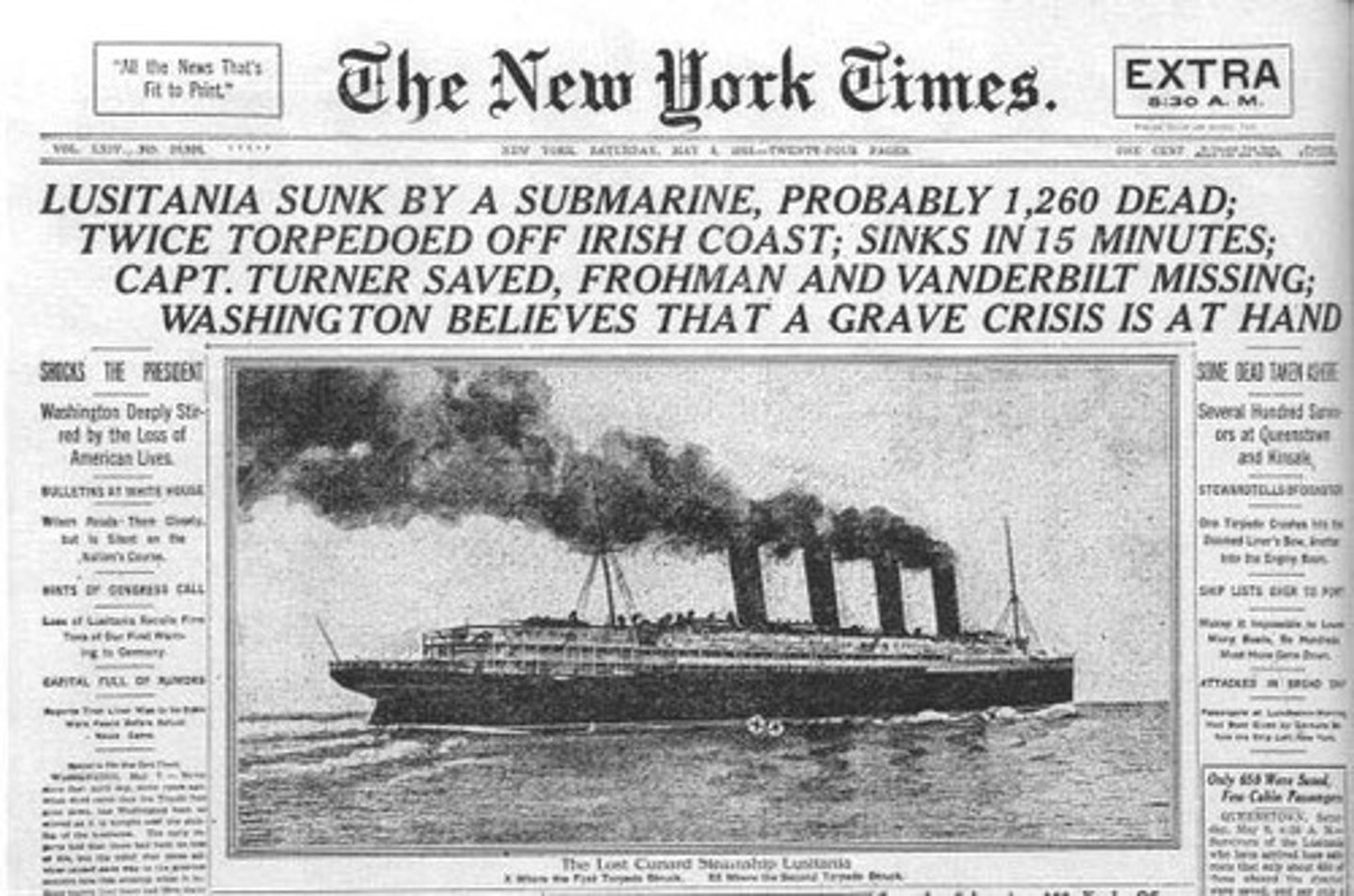
Sussex Pledge
A 1916 promise Germany made to America, after Wilson threatened to sever ties, to stop sinking their ships without warning.
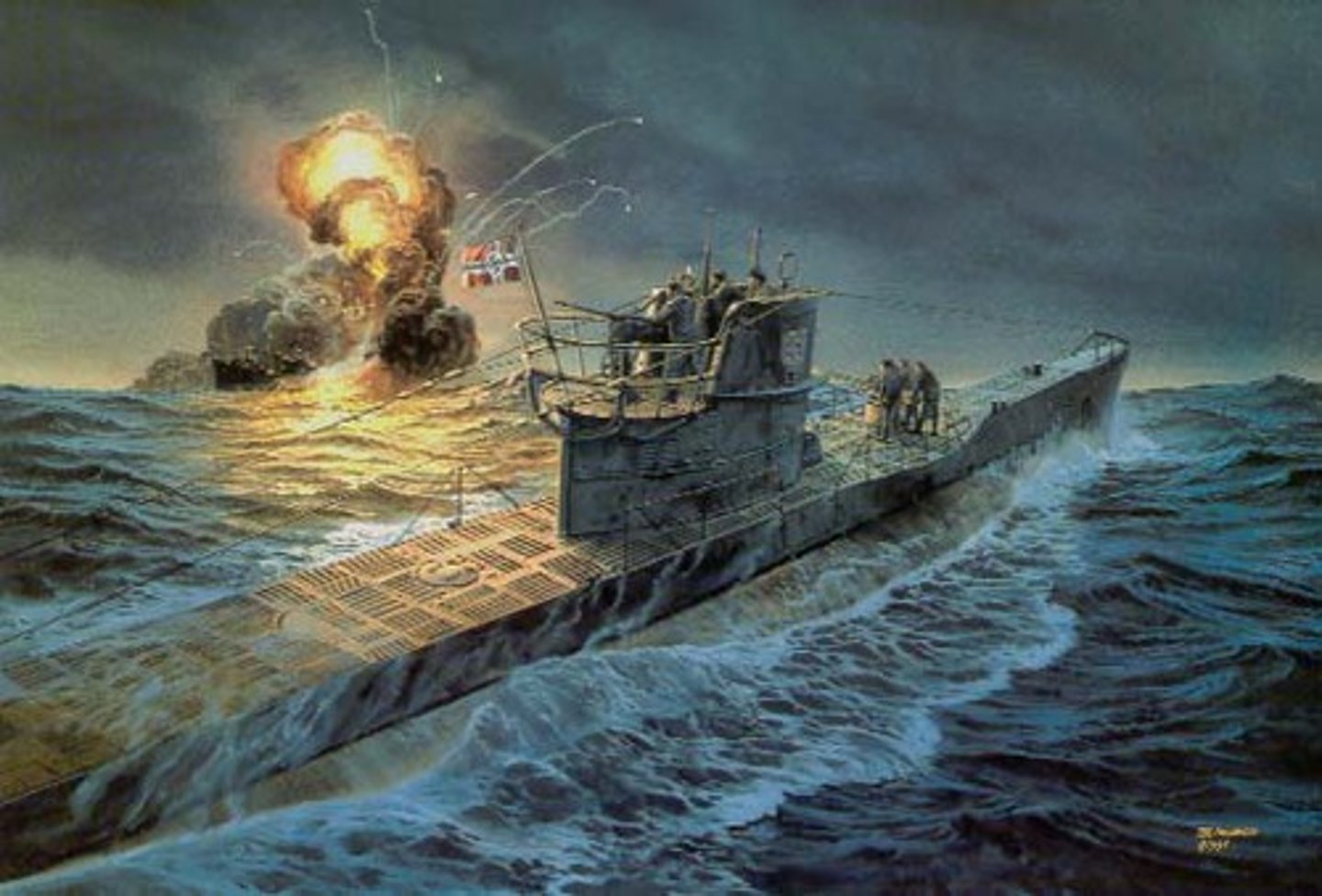
Zimmerman Note
German foreign secretary Arthur Zimmerman had secretly proposed a German-Mexican alliance against the United States. When the note was intercepted and published in March 1917, it caused an uproar that made some Americans more willing to enter the war.
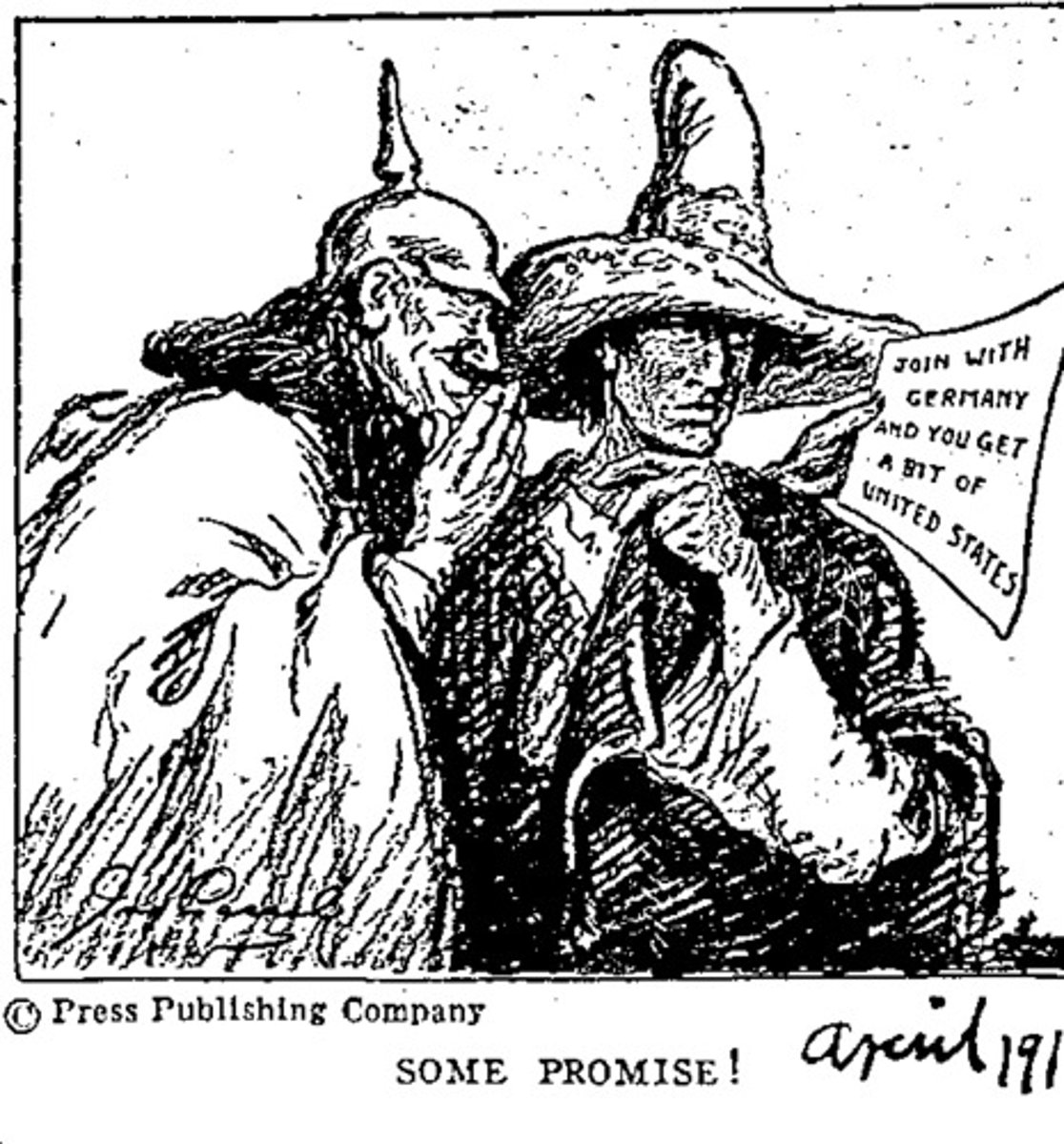
Fourteen Points
Woodrow Wilson's proposal to ensure peace after World War I, calling for an end to secret treaties, widespread arms reduction, national self-determination, and a new League of Nations.
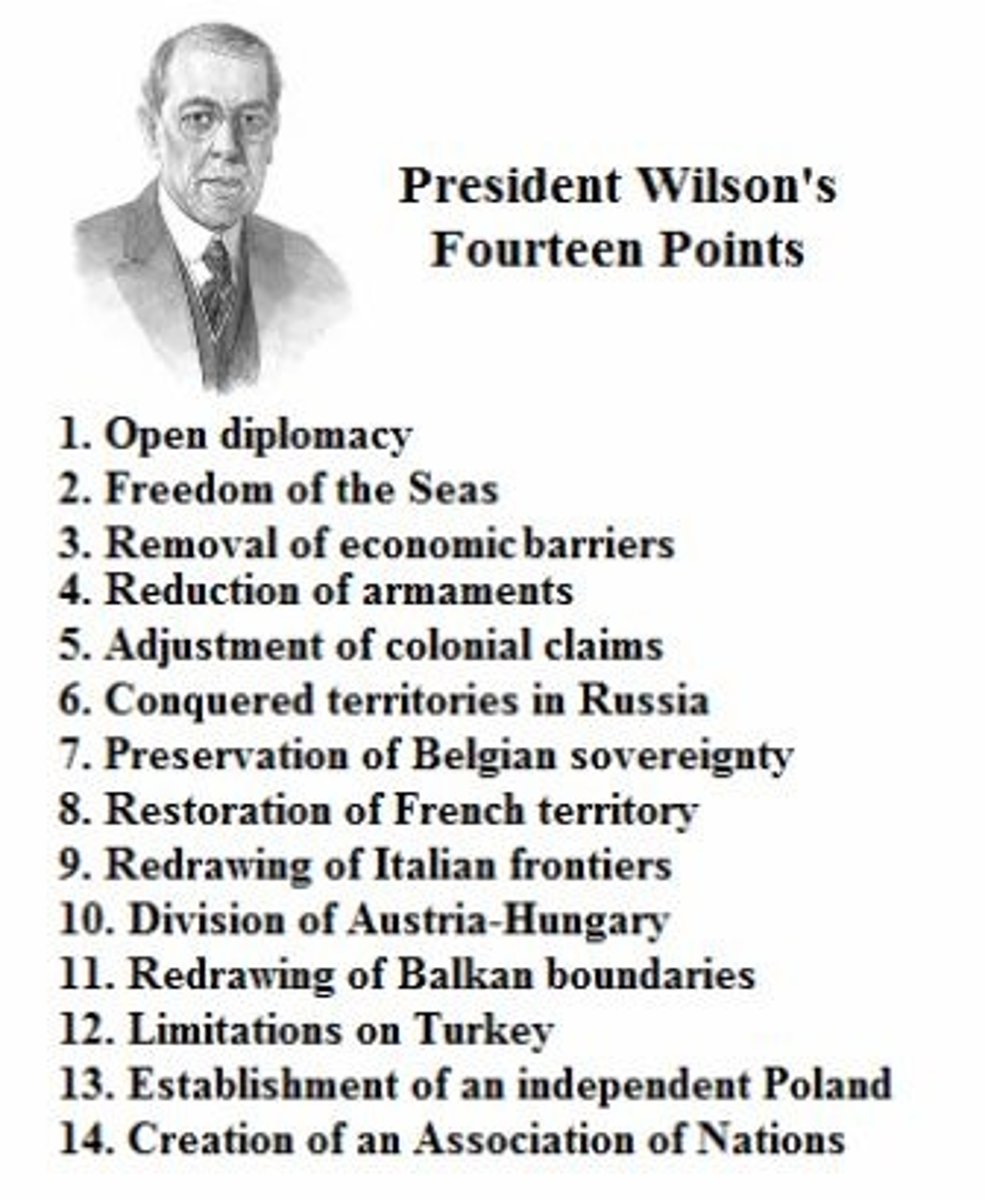
Committee on Public Information
A government office during World War I known popularity as the Creel Committee for its Chairman George Creel, it was dedicated to winning everyday Americans' support for the war effort. It regularly distributed pro-war propaganda and sent out an army of "four-minute men" to rally crowds and deliver "patriotic pep."
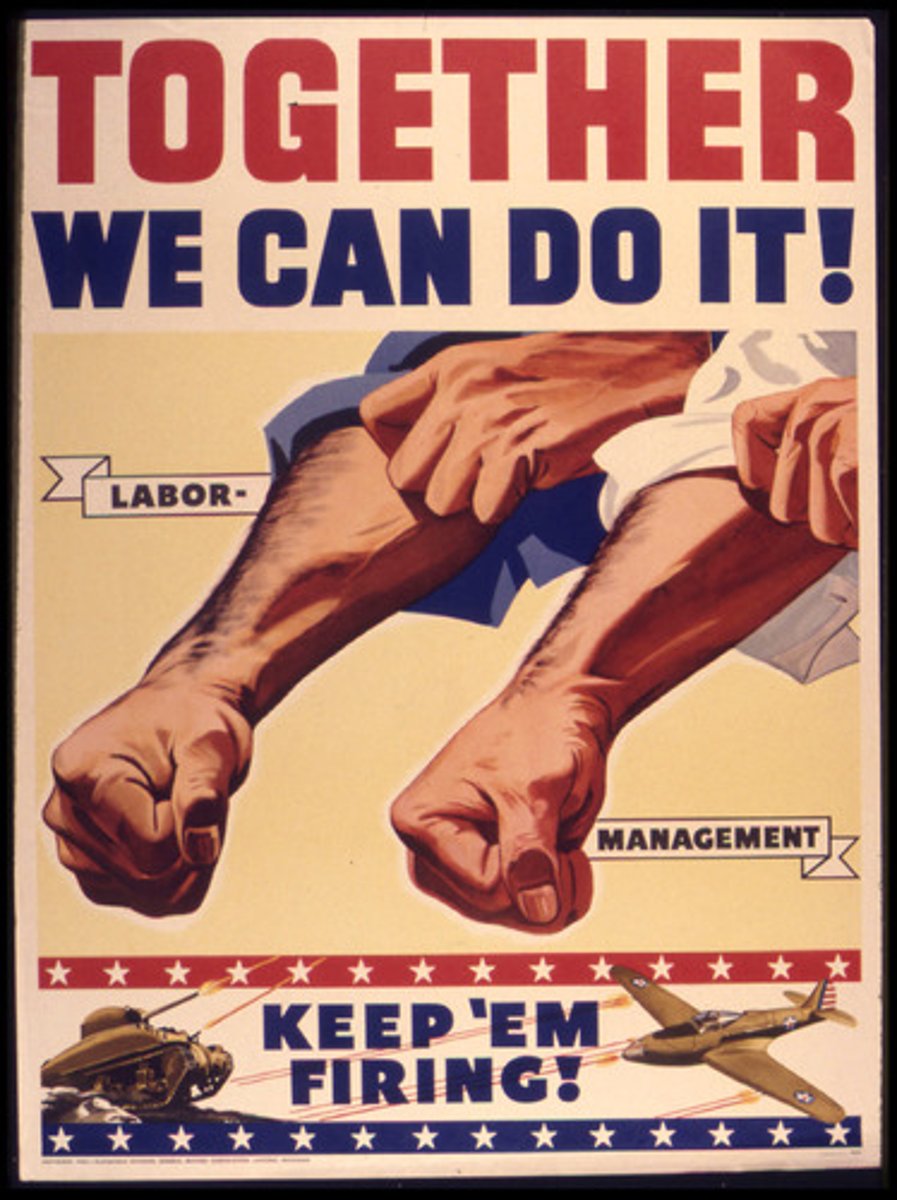
Espionage Act of 1917
A law prohibiting interference with the draft and other acts of national "disloyalty." Together with the Sedition Act of 1918, which added penalties for abusing the government in writing, it created a climate that was unfriendly to civil liberties
Historical Significance:
Eugene Debs will be arrested and run for president from jail after being found guilty of this act.
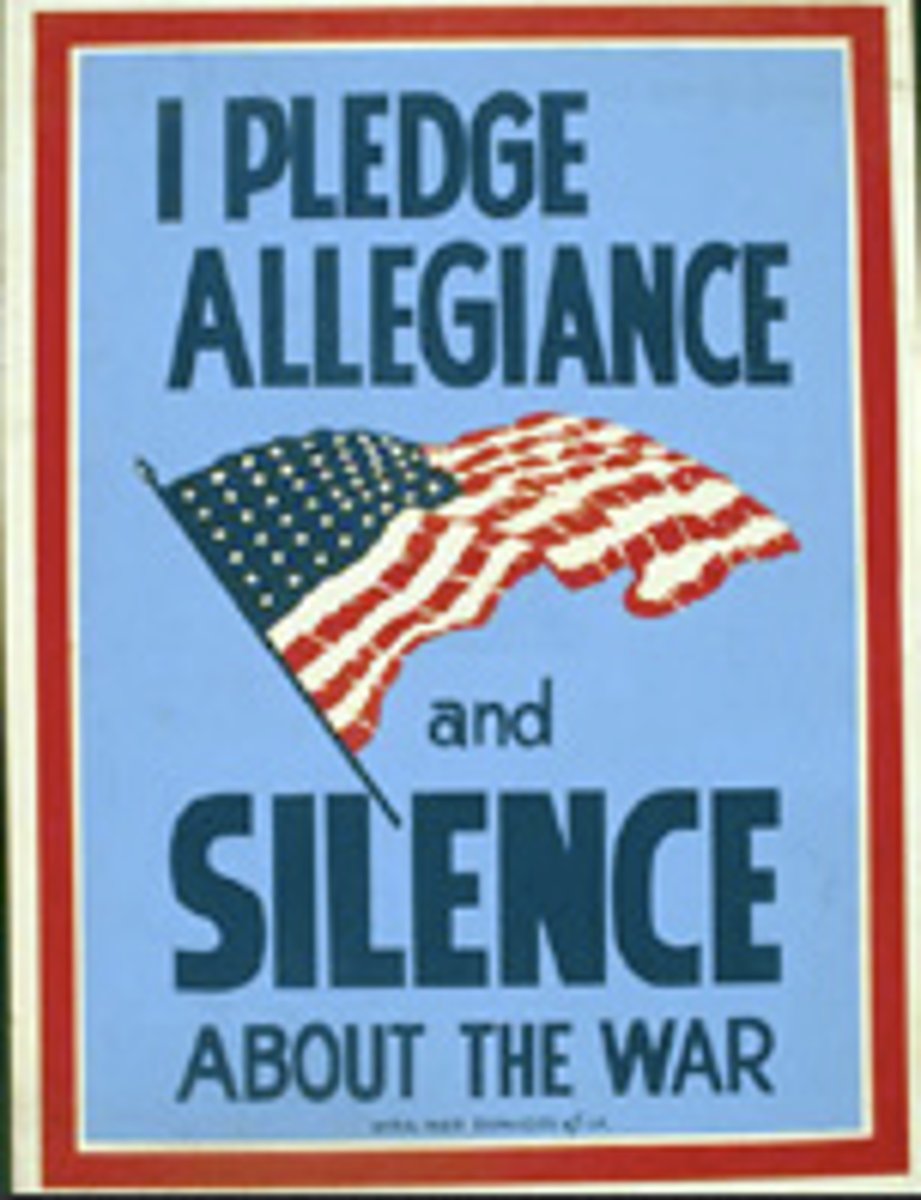
Scneck v. United States
A Supreme Court decision that upheld the Espionage and Sedition Acts, reasoning the freedom of speech could be curtailed when it posed, "a clear and present danger" to the nation.
War Industries Board (WIB)
Headed by Bernard Baruch, this federal agency coordinated industrial production during WWI. Under this economic mobilization, U.S. industrial production increased 20 percent during the war.
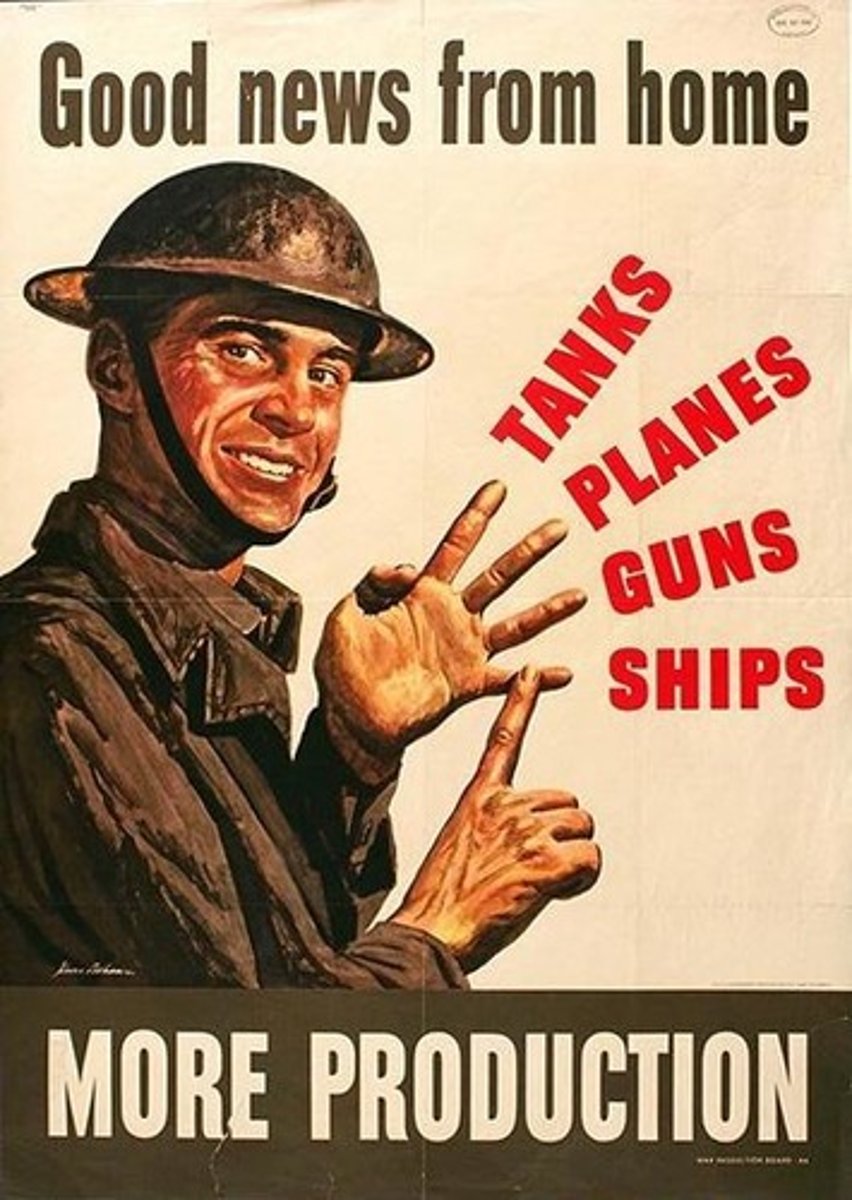
Industrial Workers of the World
Also known as the "Wobblies," was a radical organization that sought to build "one big union" and advocated industrial sabotage in defense of that goal. At its peak in 1923, it could claim 100,000 members and could gain the support of 300,000. The IWW particularly appealed to migratory workers in agriculture and lumbering and to miners, all of whom suffered from horrific working conditions.
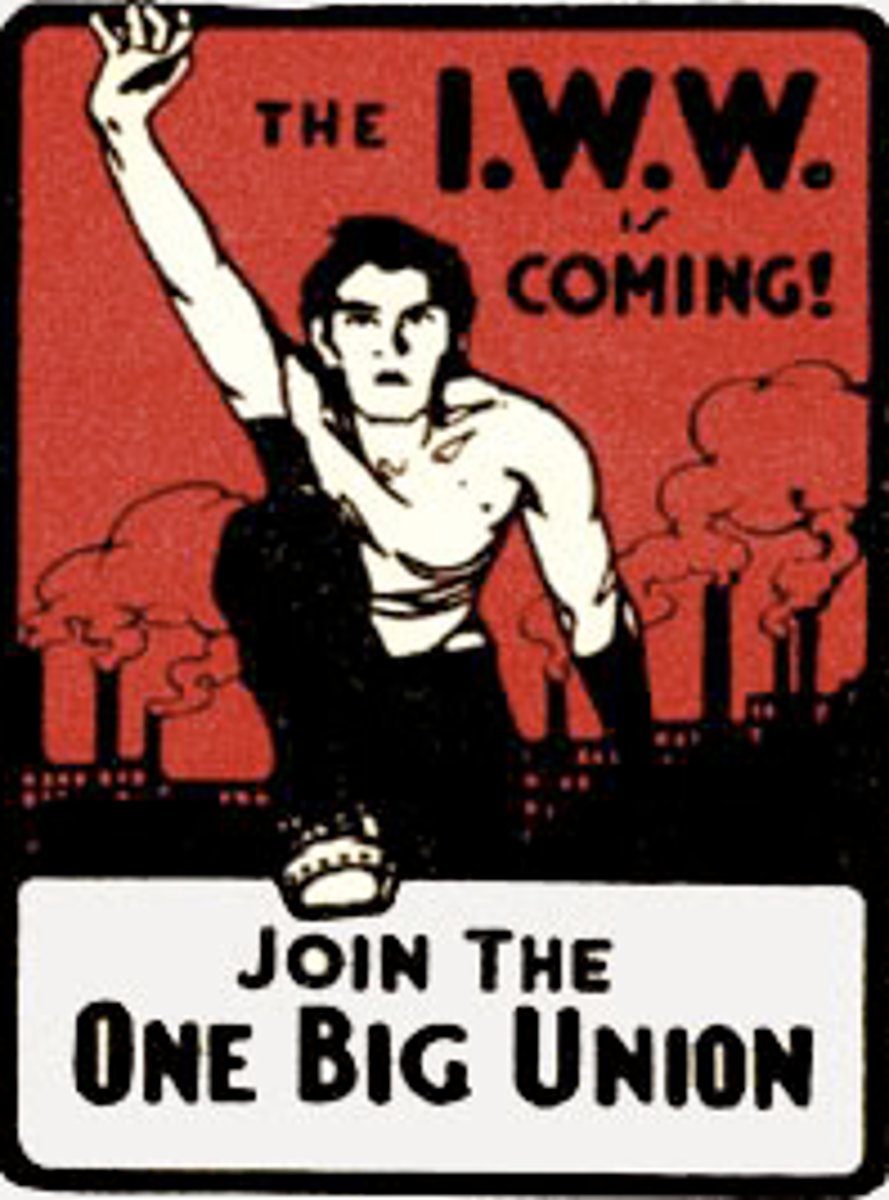
Great Migration
The movement of 6 million African-Americans out of the rural Southern United States to the urban Northeast, Midwest, and West that occurred between 1910 and 1970.
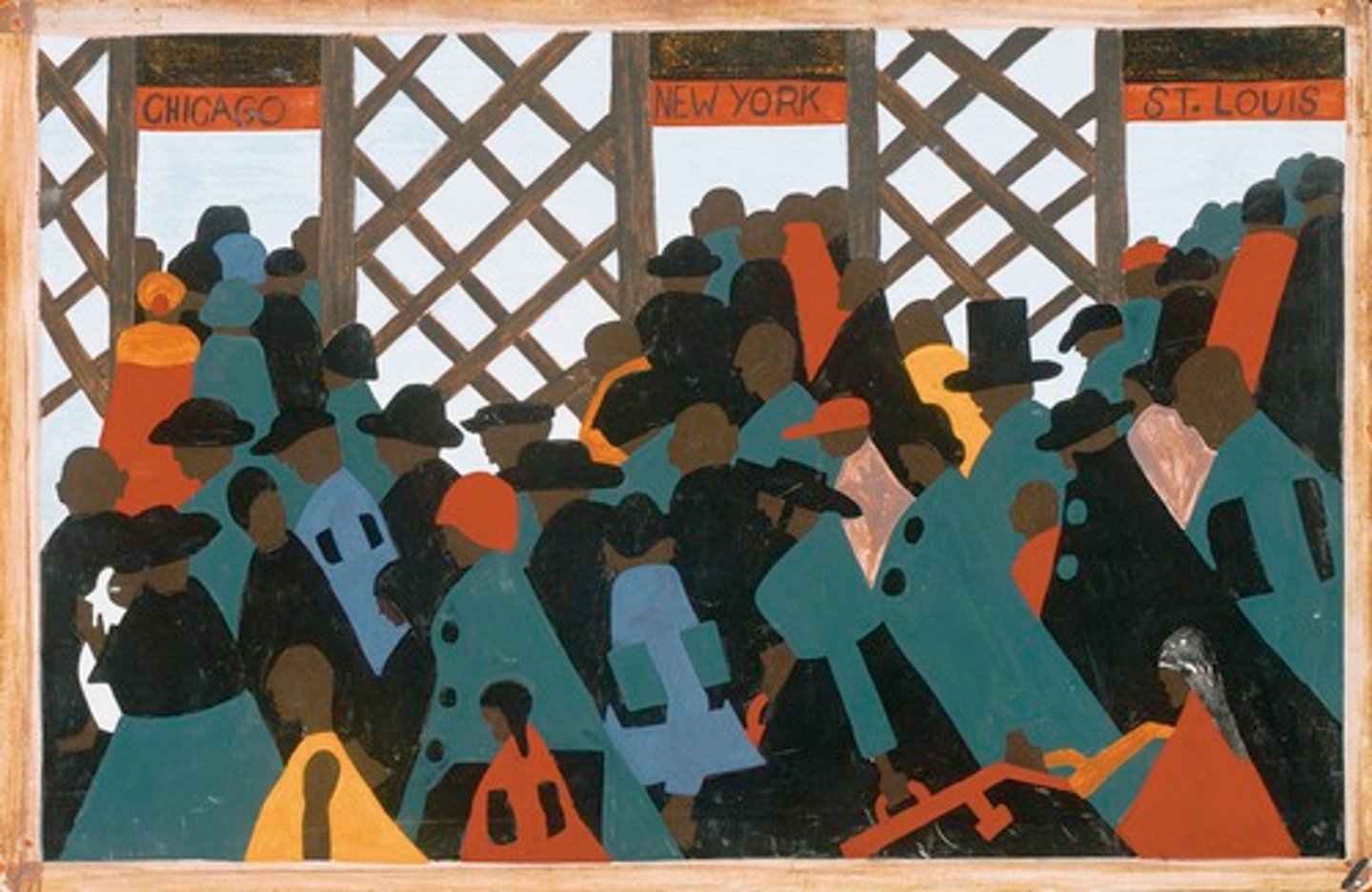
Nineteenth Amendment
The constitutional amendment adopted in 1920 that guarantees women the right to vote.
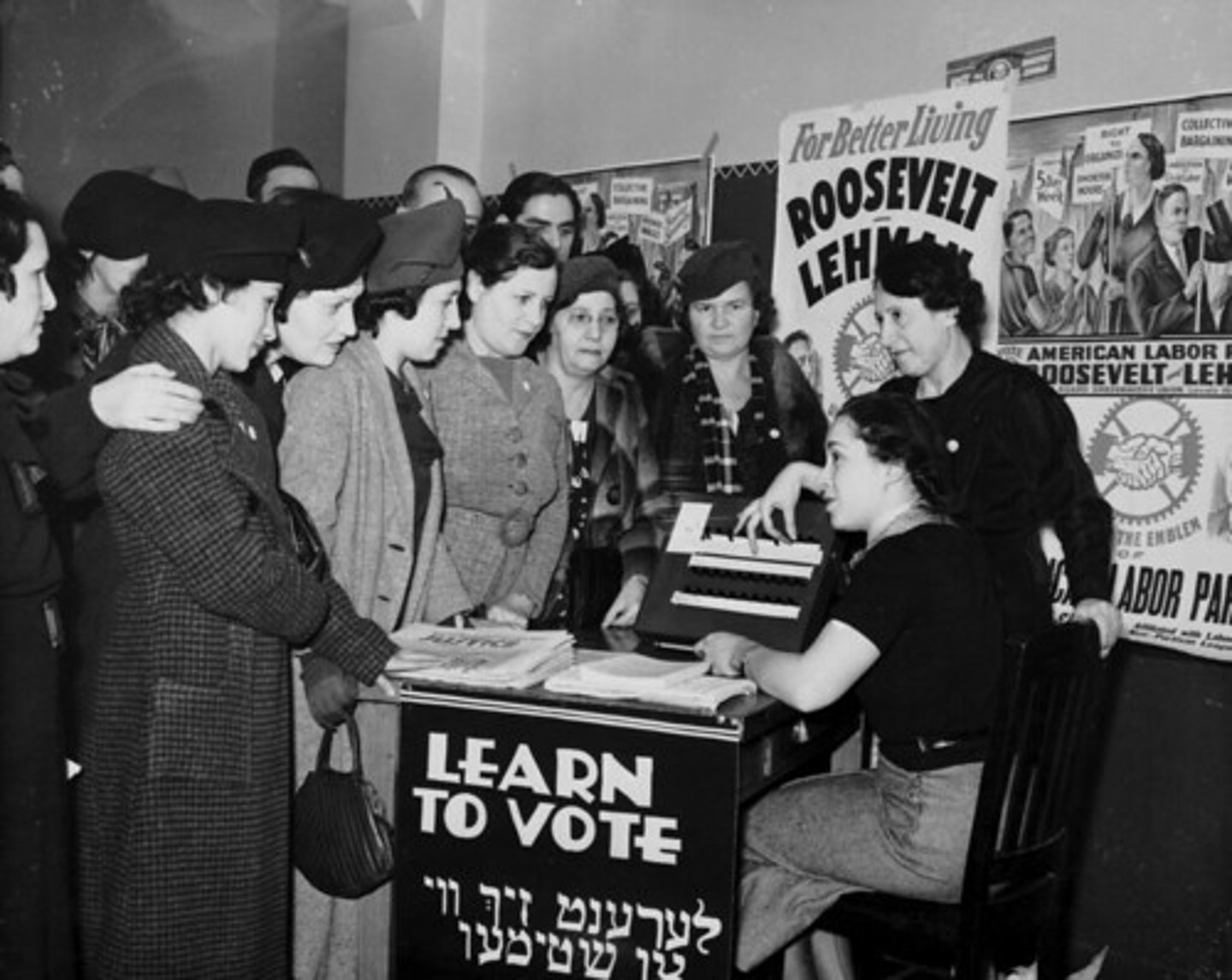
American Expeditionary Force
About 2 million Americans went to France as members of this under General John J. Pershing. Included the regular army, the National Guard, and the new larger force of volunteers and draftees and they served as individuals
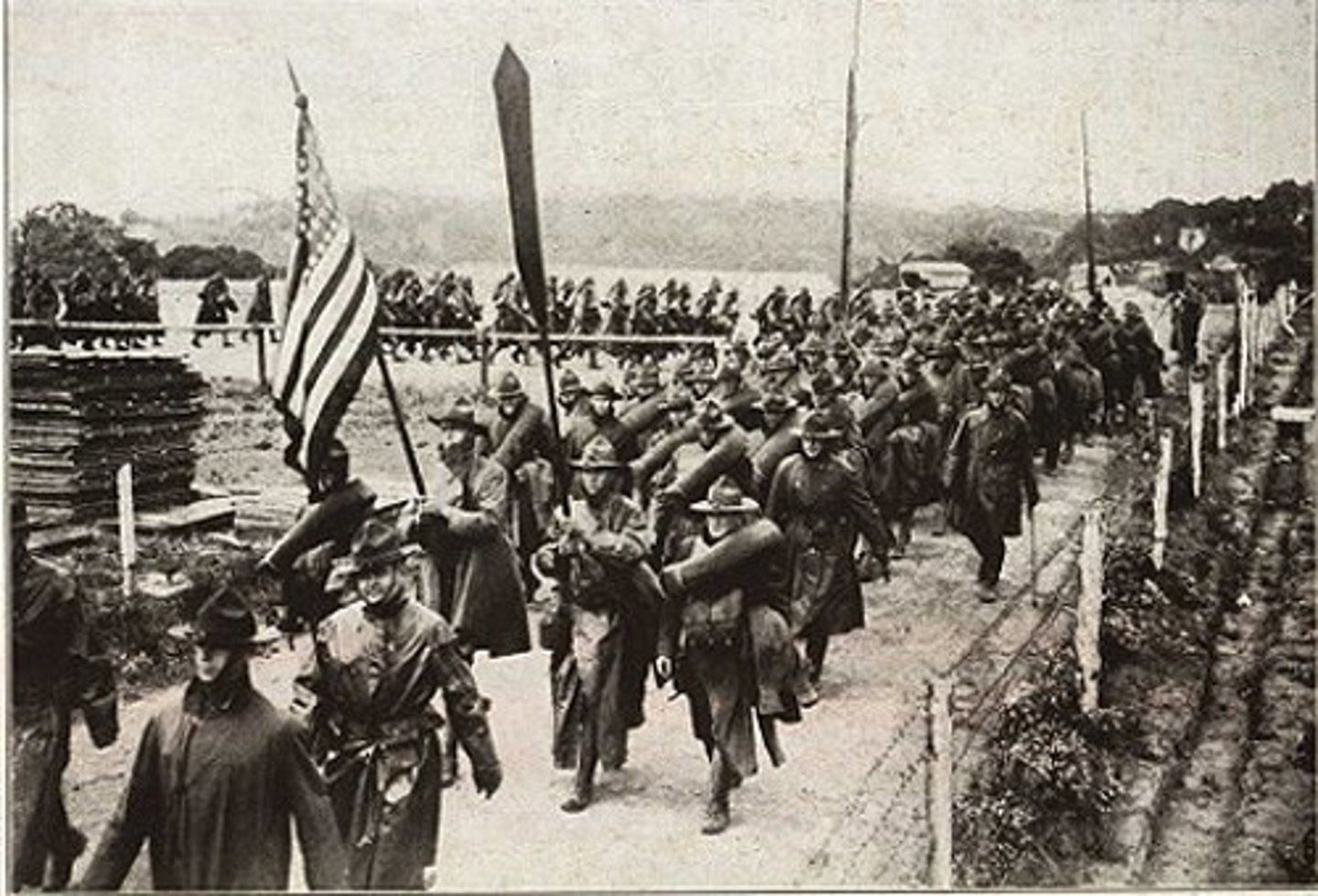
Battle of Chateau-Thierry (1918)
The first significant engagement of American troops in WWI - and indeed, in any European war. To weary French soldiers, the American doughboys were an image of fresh and gleaming youth
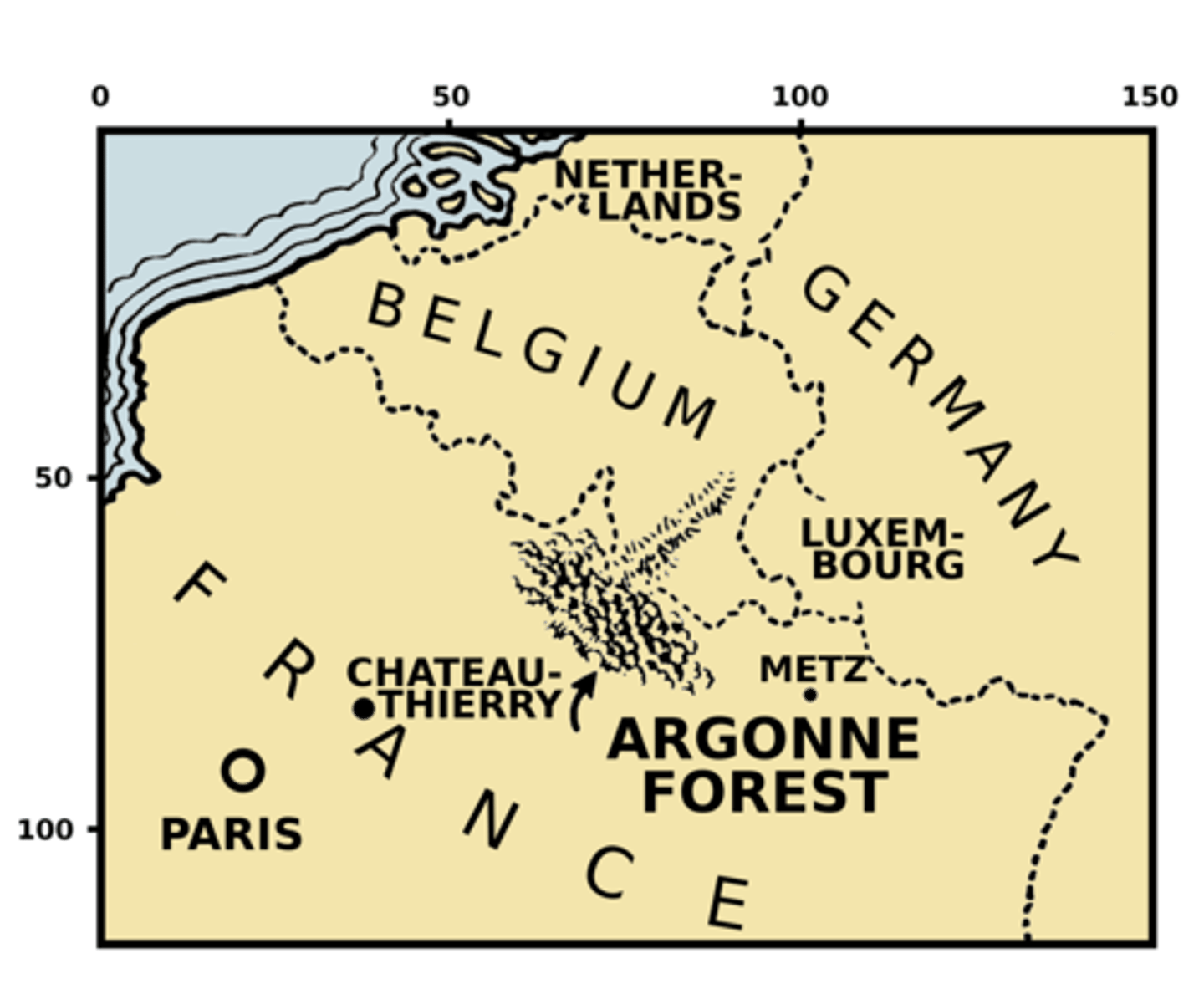
Meuse-Argonne Offensive
Also called the Battle of the Argonne Forest, was a part of the final Allied offensive of World War I that stretched along the entire western front. The whole offensive was planned by Marshall Ferdinand Foch to breach the Hindenburg line and ultimately force the opposing German forces to surrender
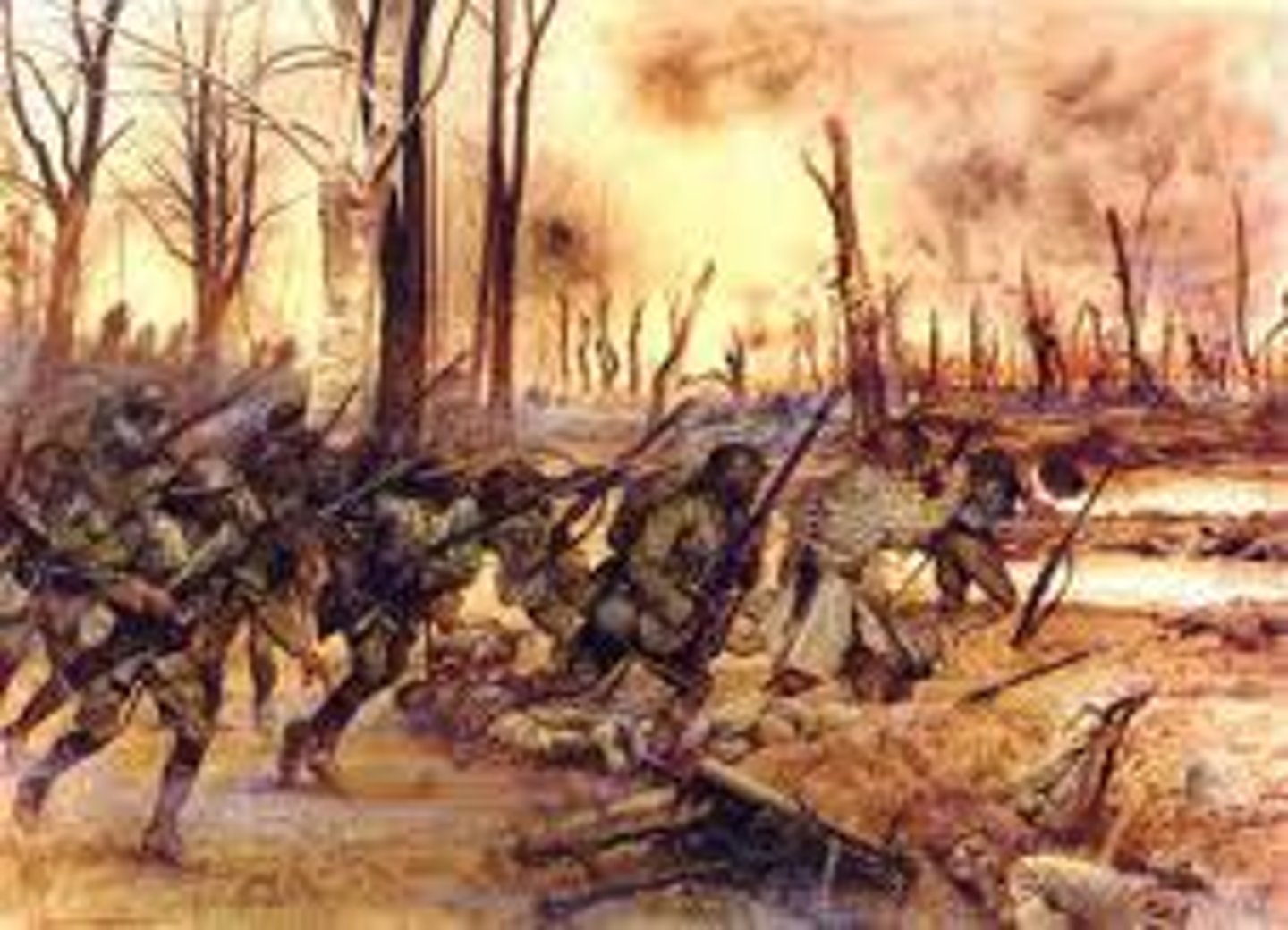
John J. Pershing
Commander of American Expeditionary Force of over 1 million troops who insisted his soldiers fight as independent units so US would have independent role in shaping the peace
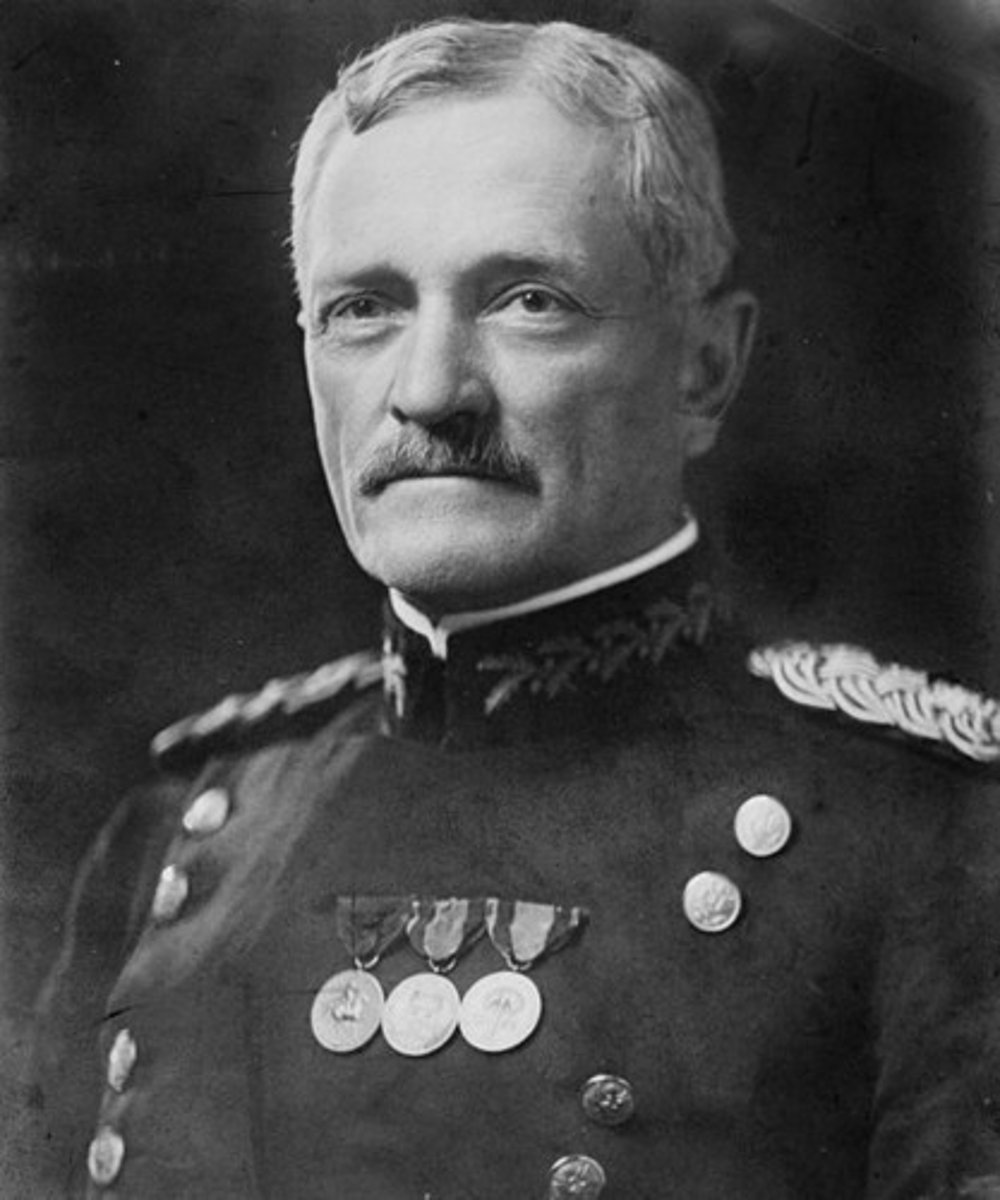
League of Nations
An international organization formed in 1920 to promote cooperation and peace among nations
Historical Significance:
proposed by Woodrow Wilson in his Fourteen Points,
rejected by US Senate for fear that the US would be pulled into foreign entanglements
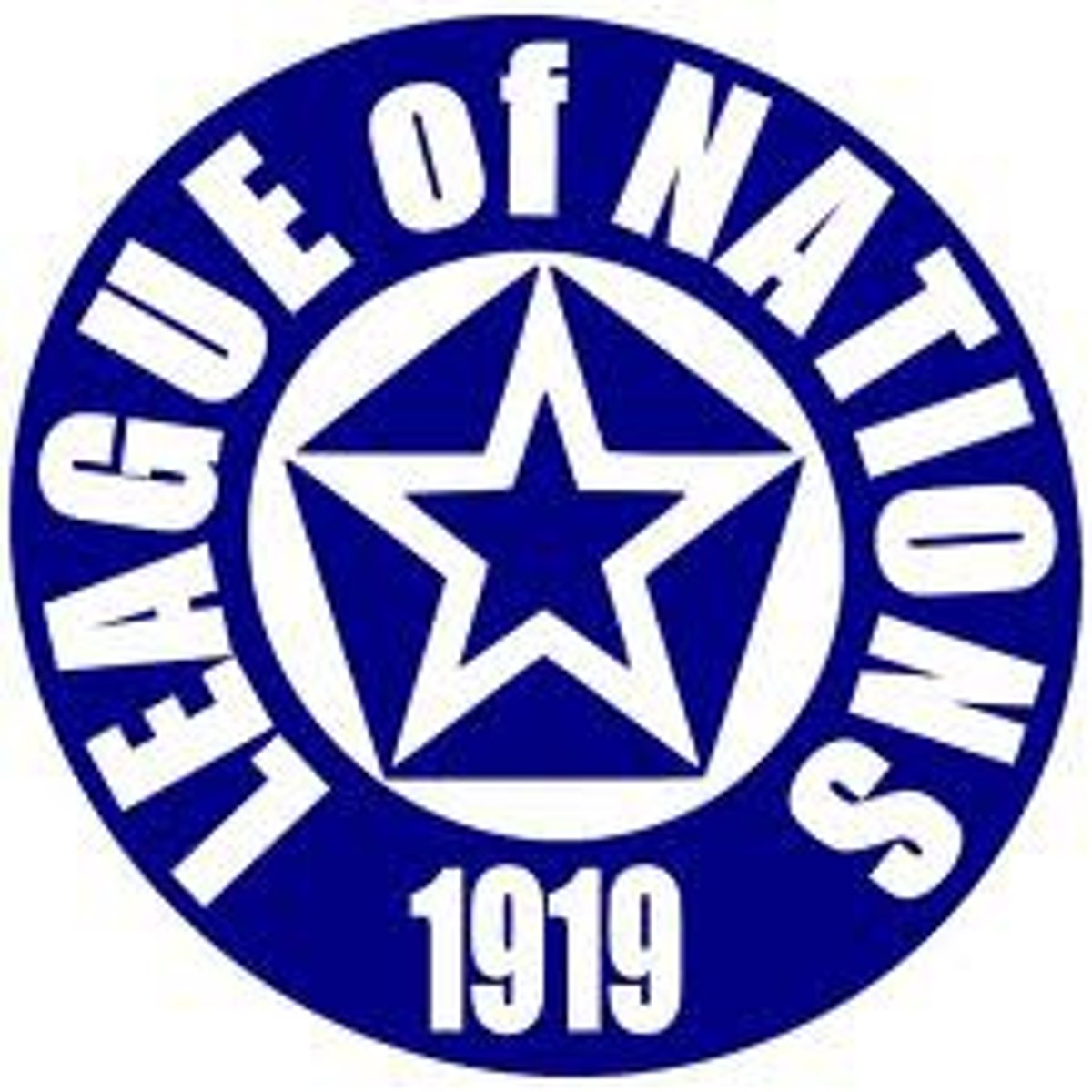
Treaty of Versailles
World War I concluded with this vengeful document, which secured peace but imposed sharp terms on Germany and created a territorial mandate system to manage former colonies of the world powers. To Woodrow Wilson's chagrin, it incorporated very few of his original Fourteen Points, although it did include the League of Nations that Wilson had long sought. Isolationists in the United States, deeply opposed to the League, led the opposition to the Treaty, which was never ratified by the Senate.
Historical Significance: Harsh reparations will cause financial issues and lead to a worldwide Great Depression; harshness of the treaty will give Hitler a platform for power in Germany
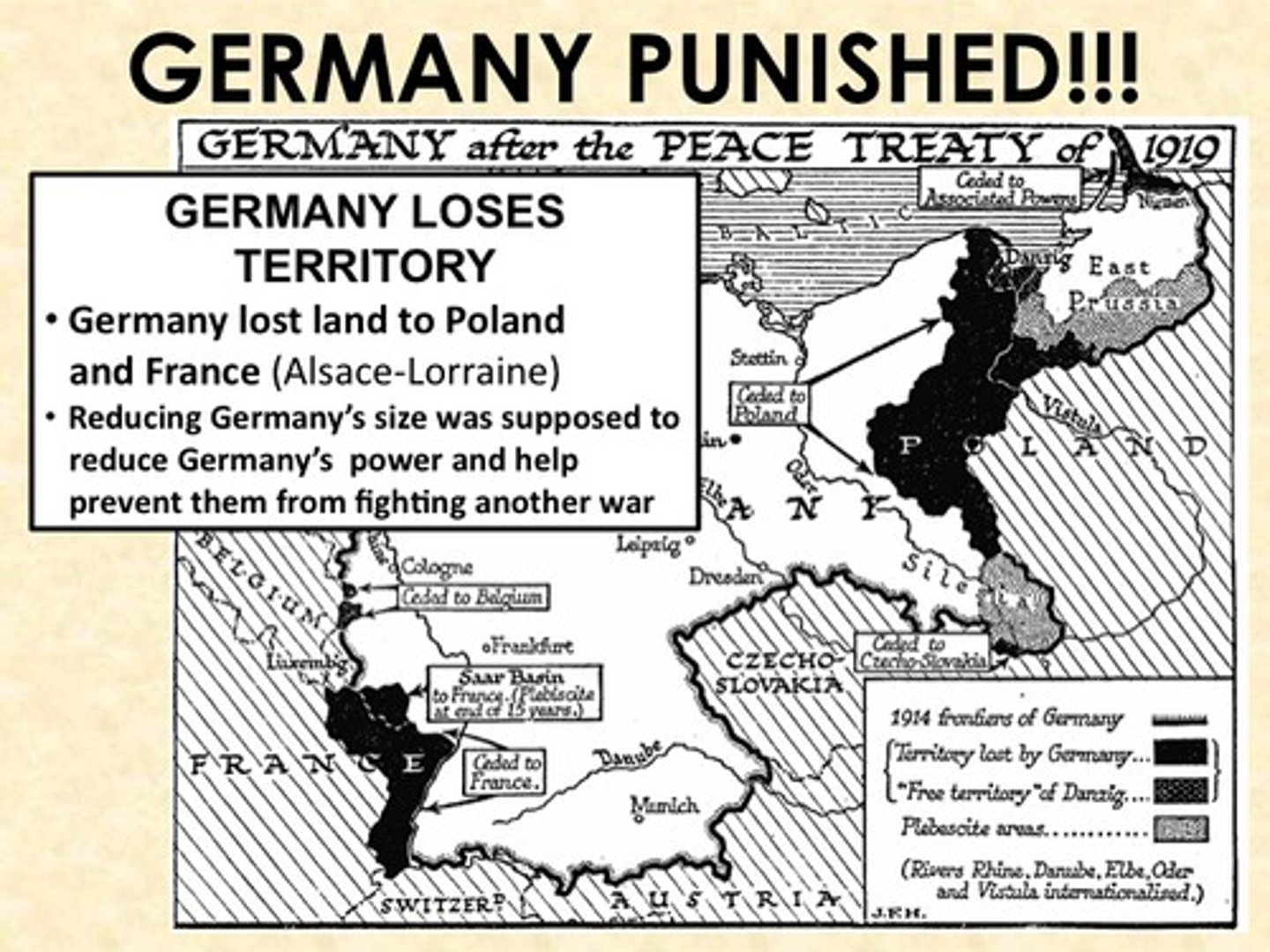
Irreconcilables
During World War I, senators William Borah of Idaho and Hiram Johnson of California, led a group of people who were against the United States joining the League of Nations. Also known as "the Battalion of Death". They were extreme isolationists and were totally against the U.S. joining the League of Nations.
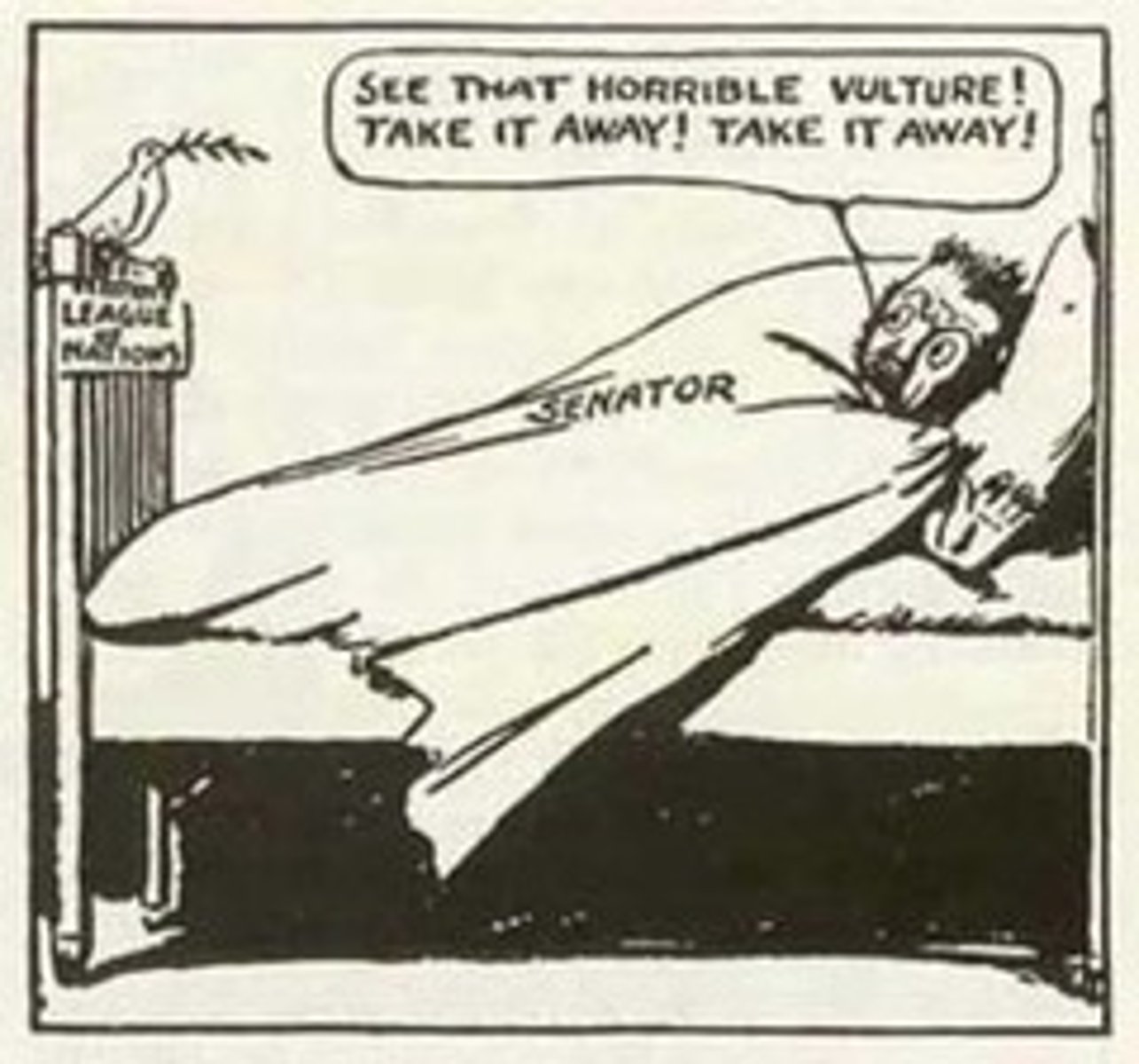
Reservationists
Senators who pledged to vote in favor of the Treaty of Versailles if certain changes were made - led by Henry Cabot Lodge
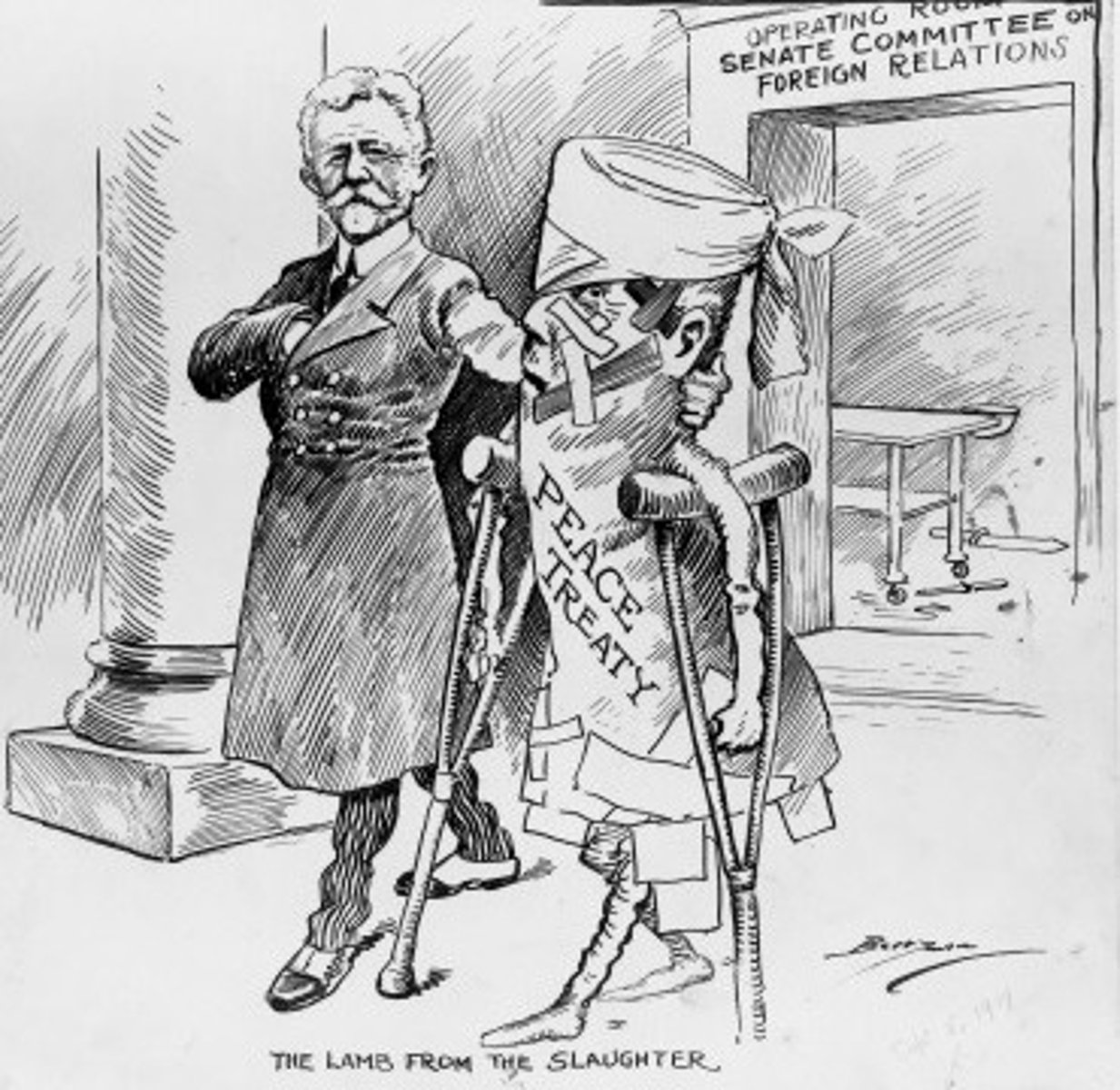
Henry Cabot Lodge
Chairman of the Senate Foreign Relations Committee, he was a leader in the fight against participation in the League of Nations
